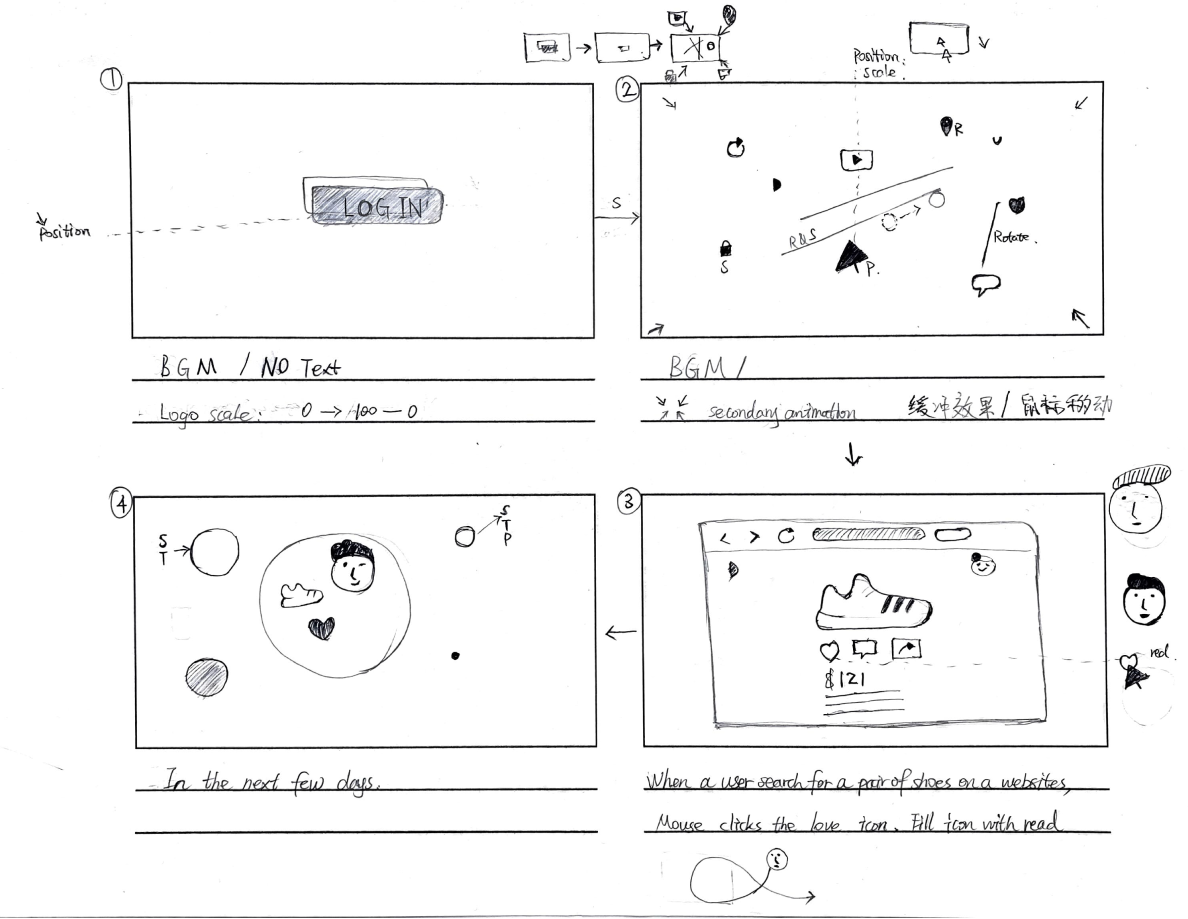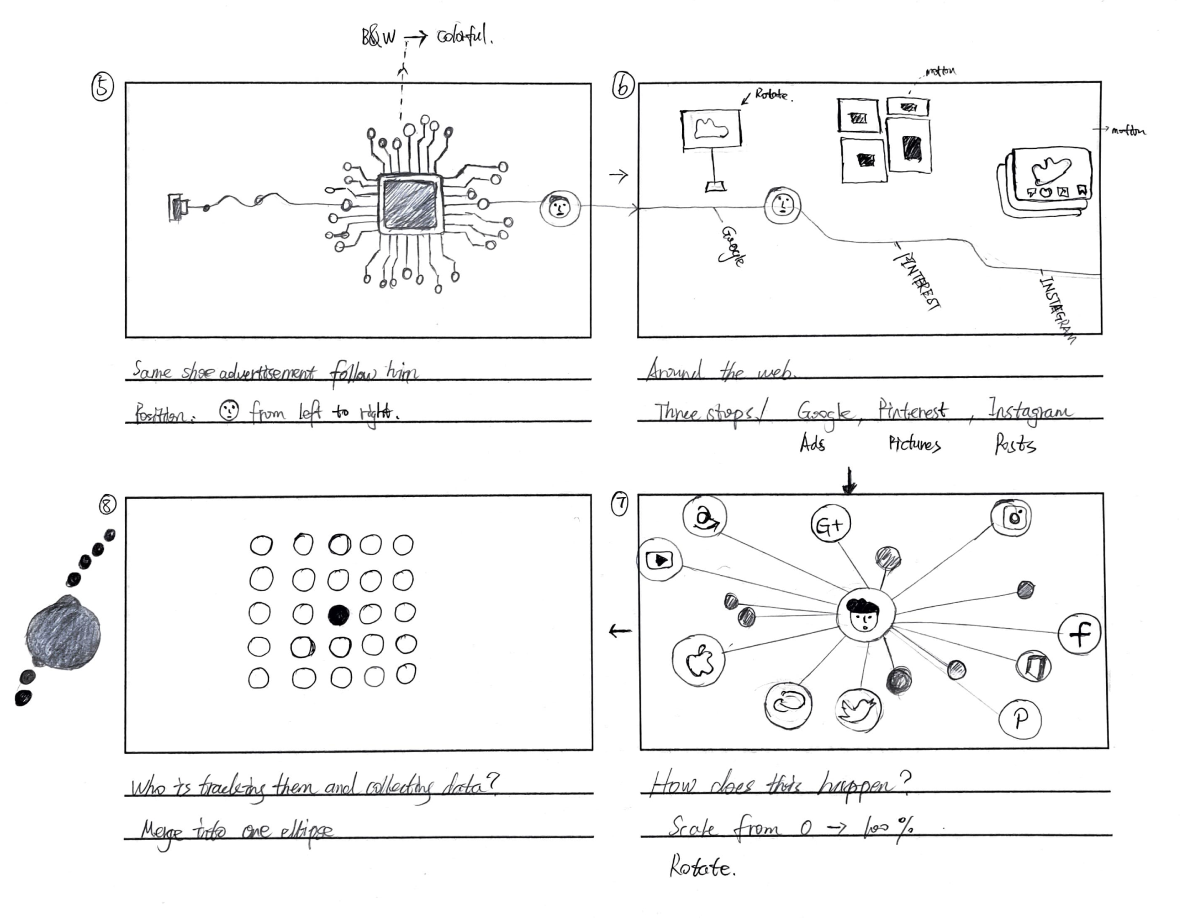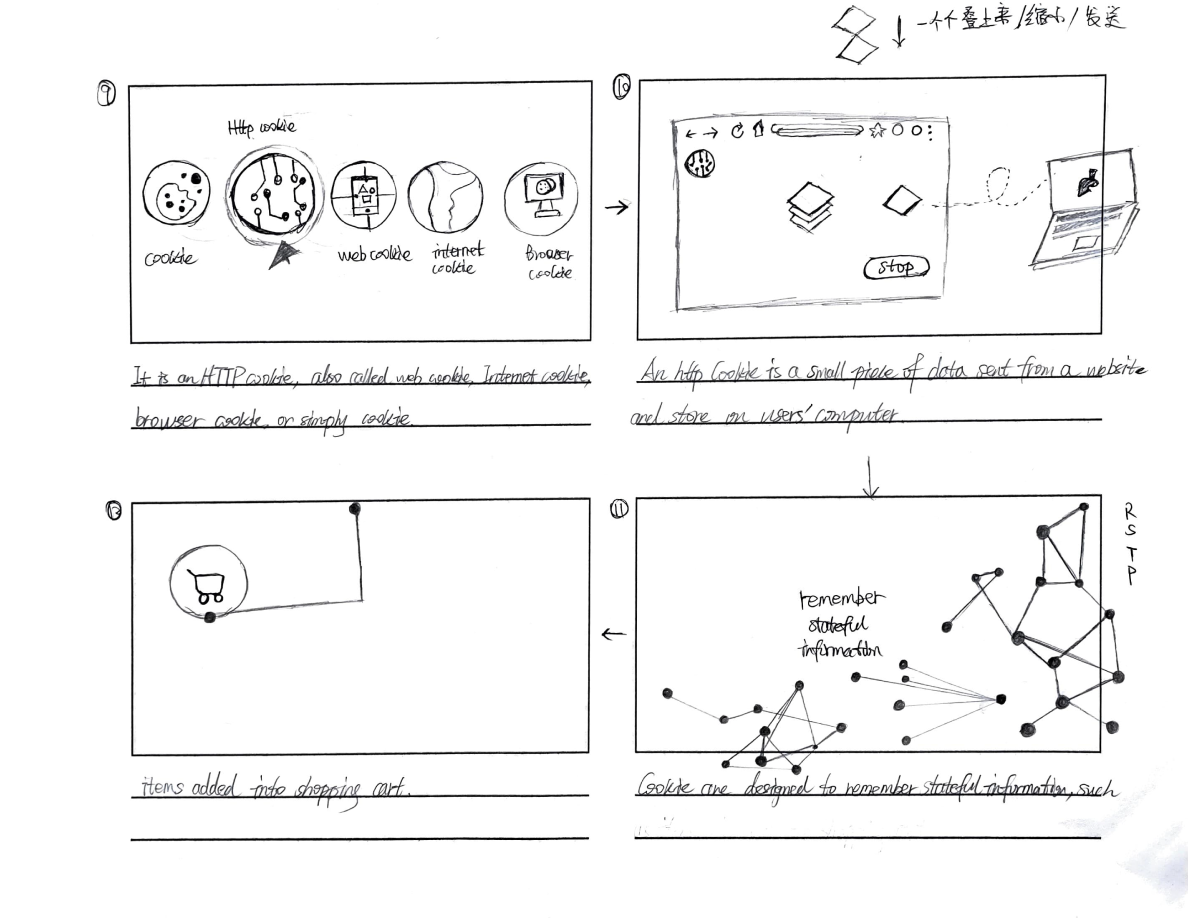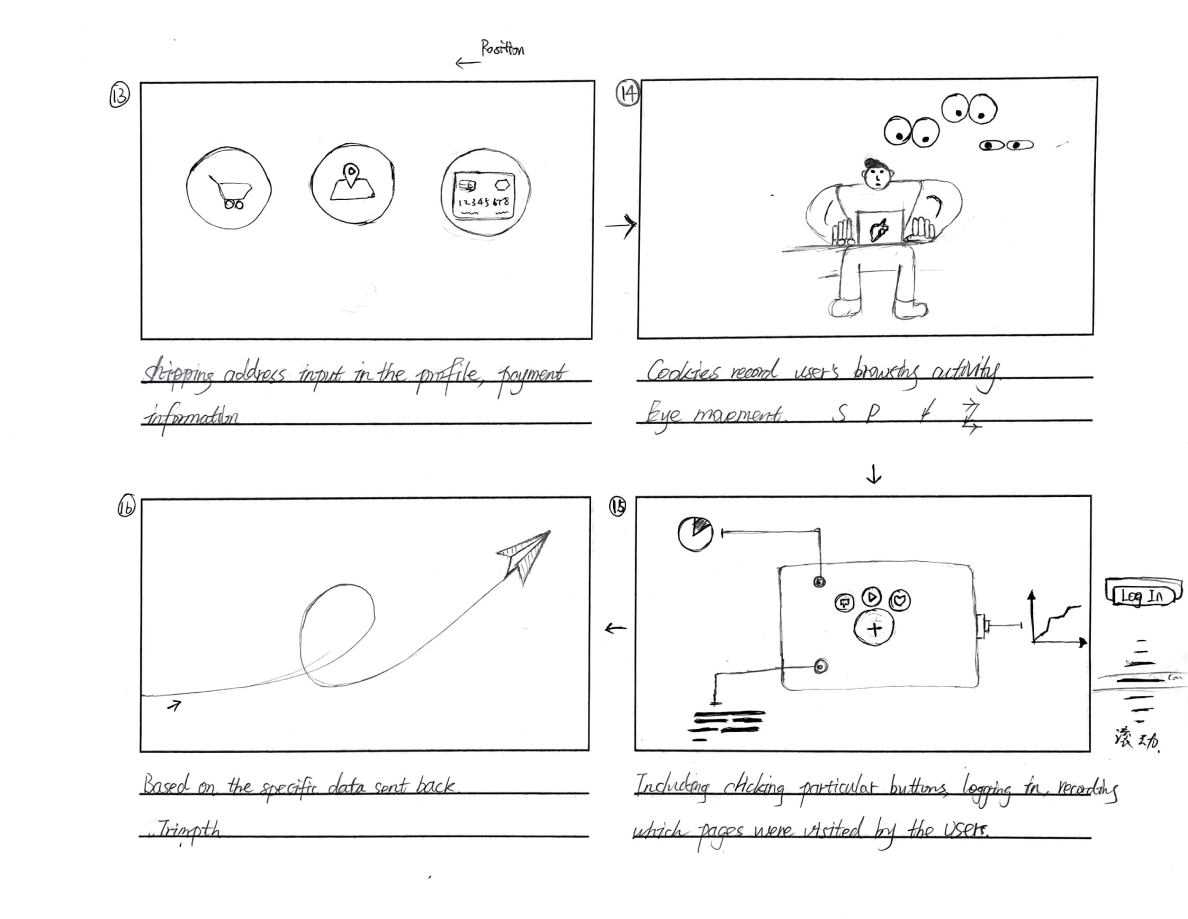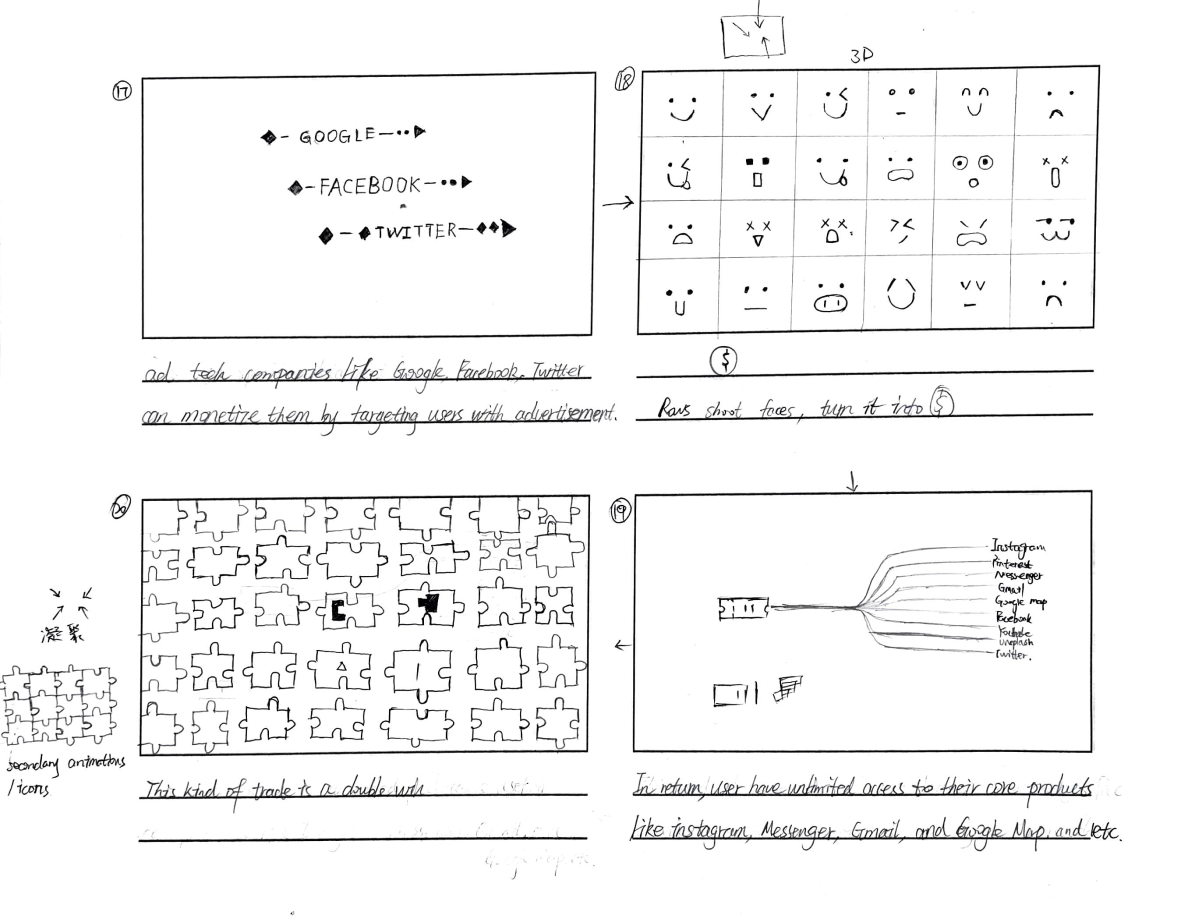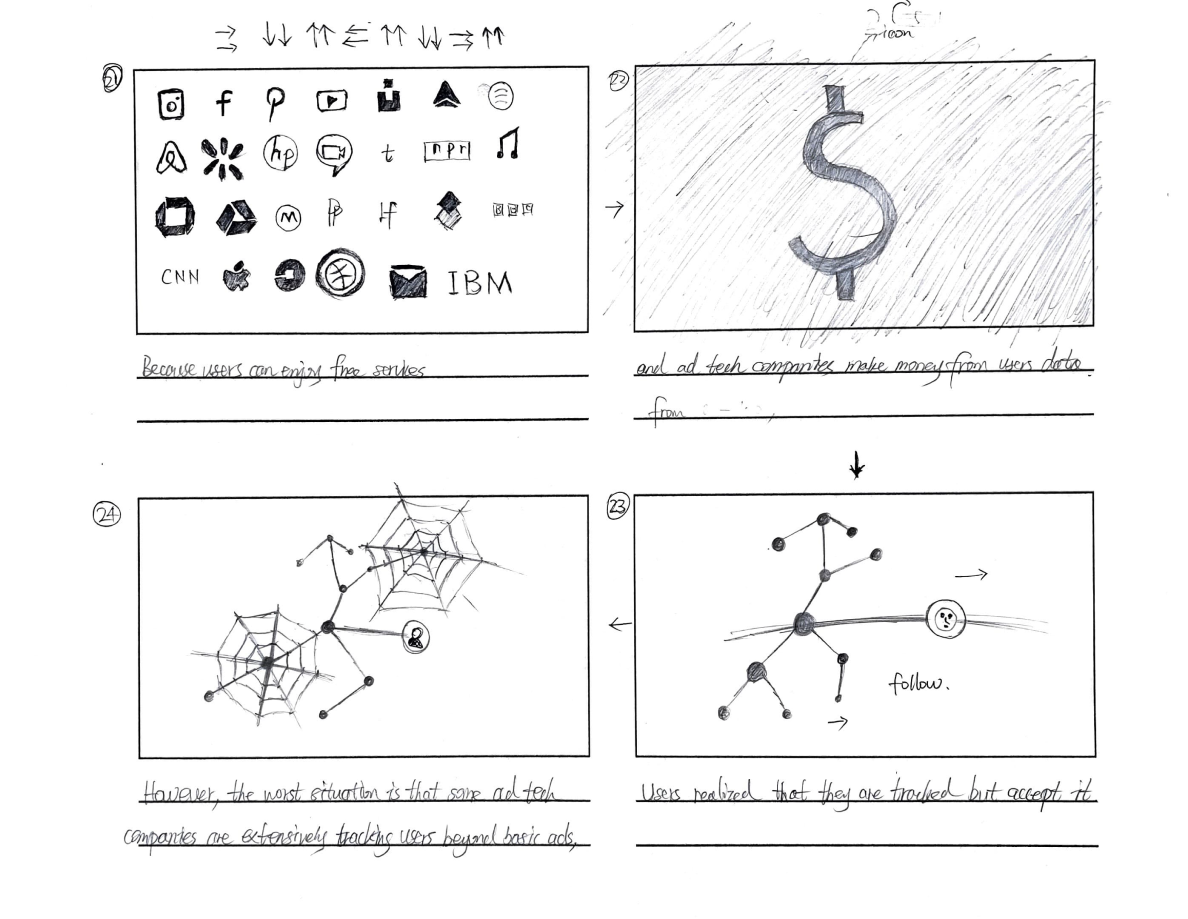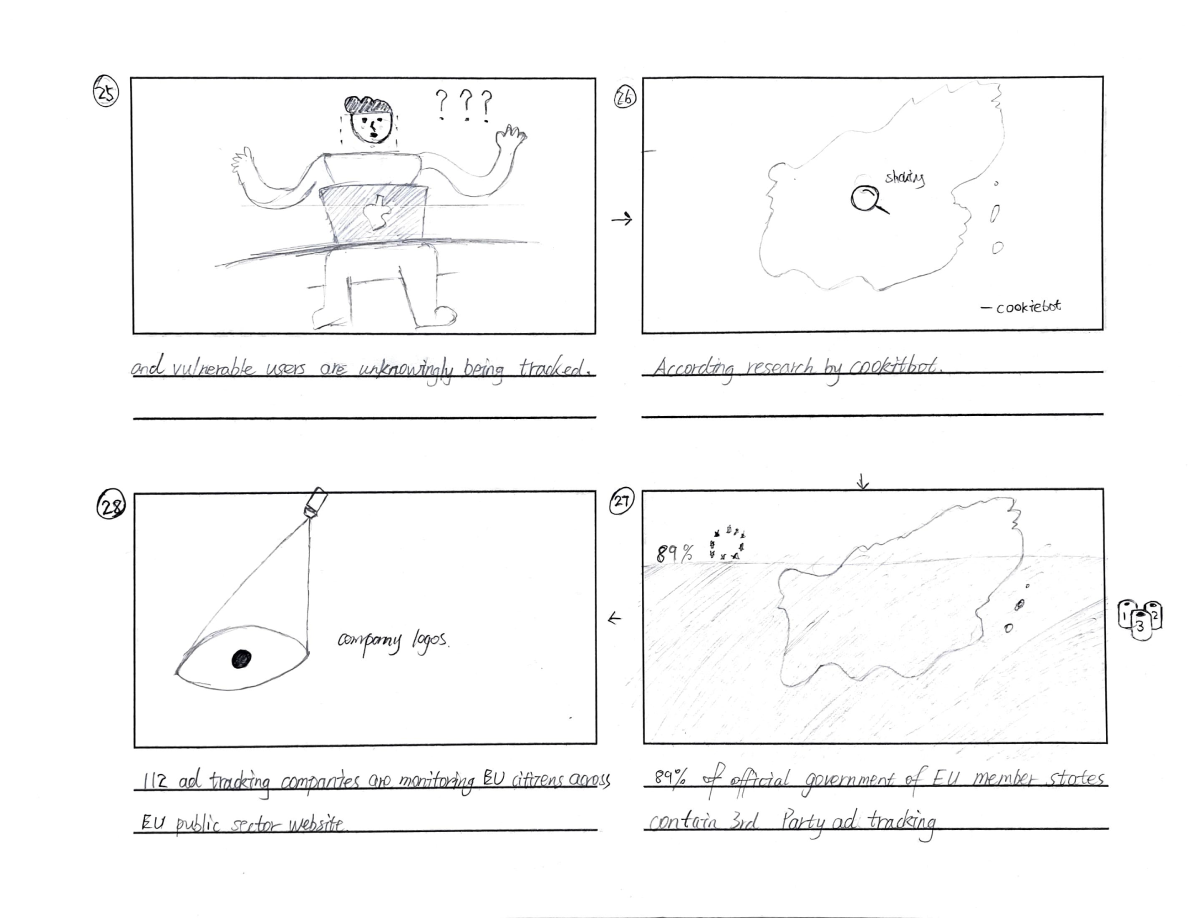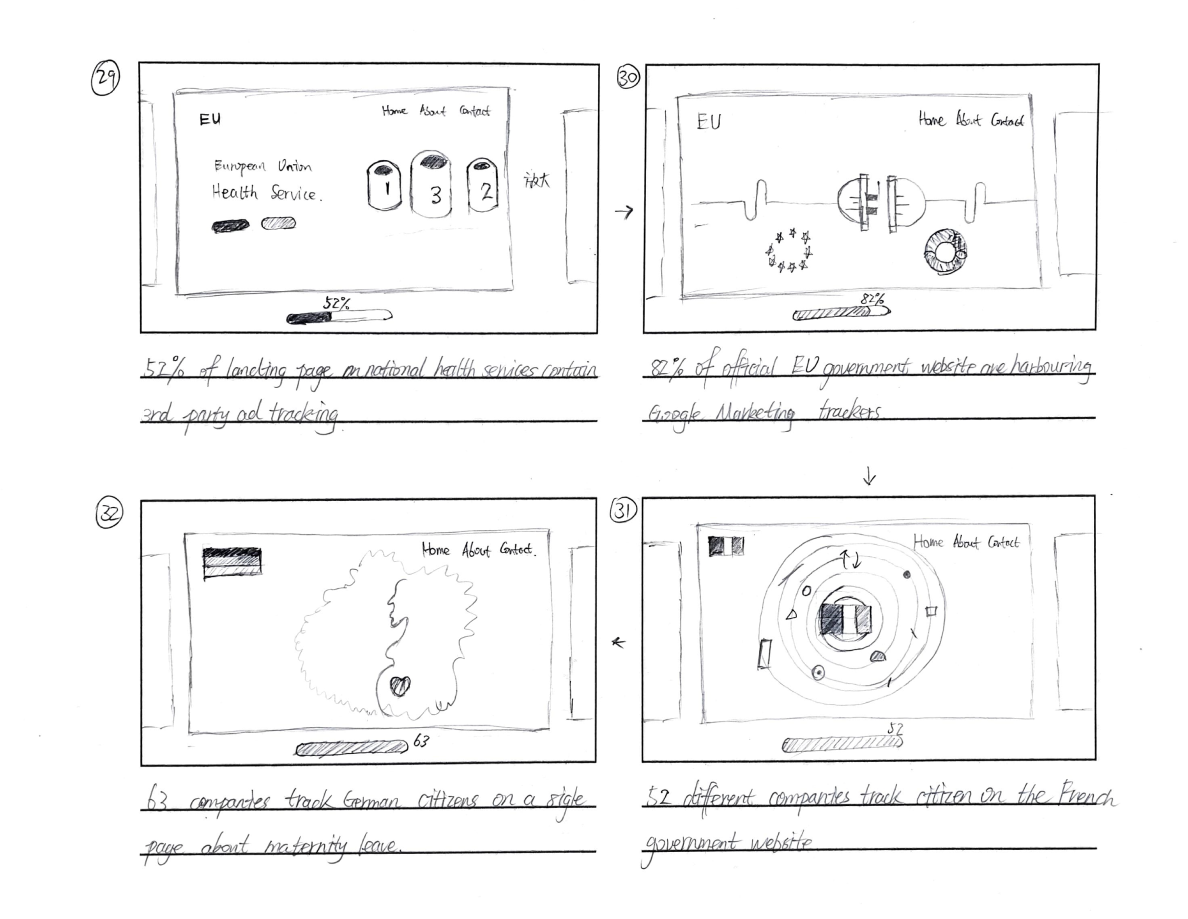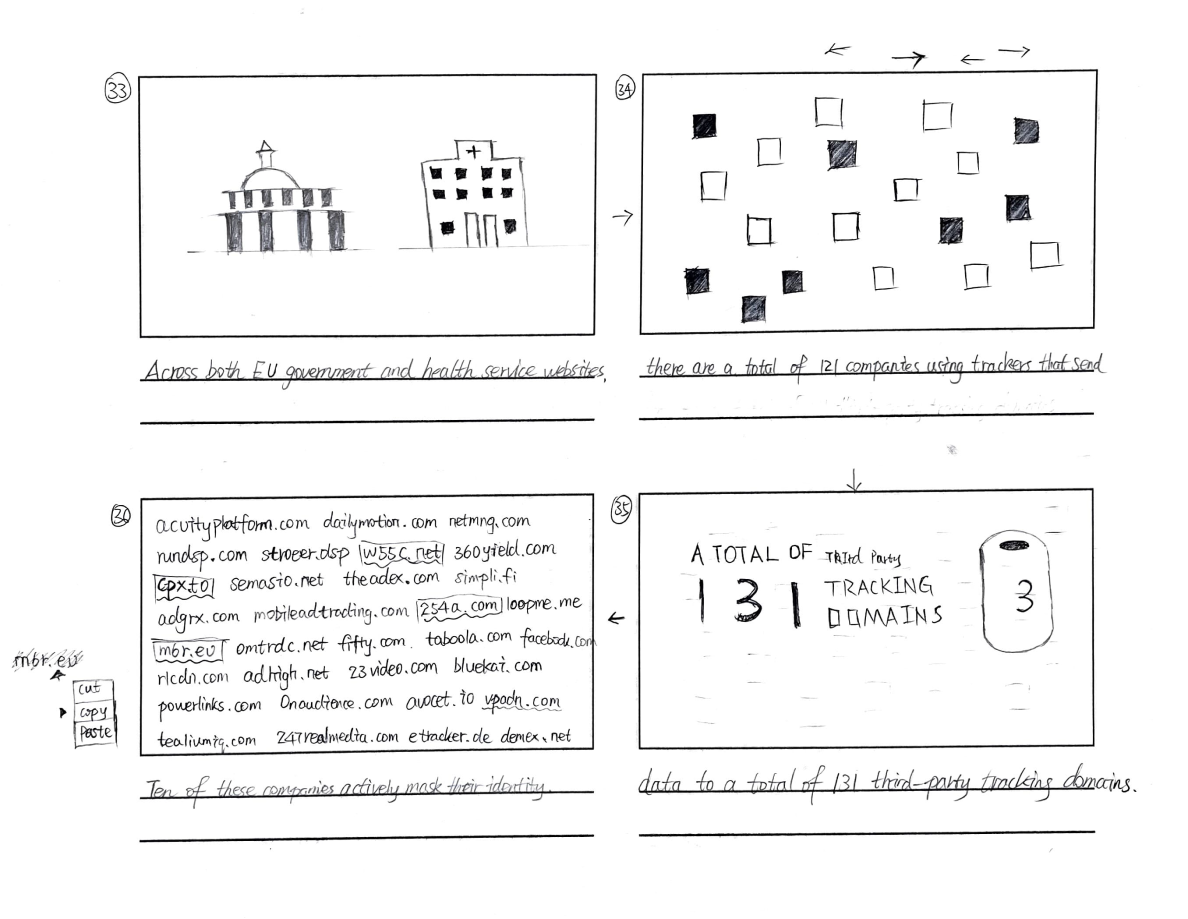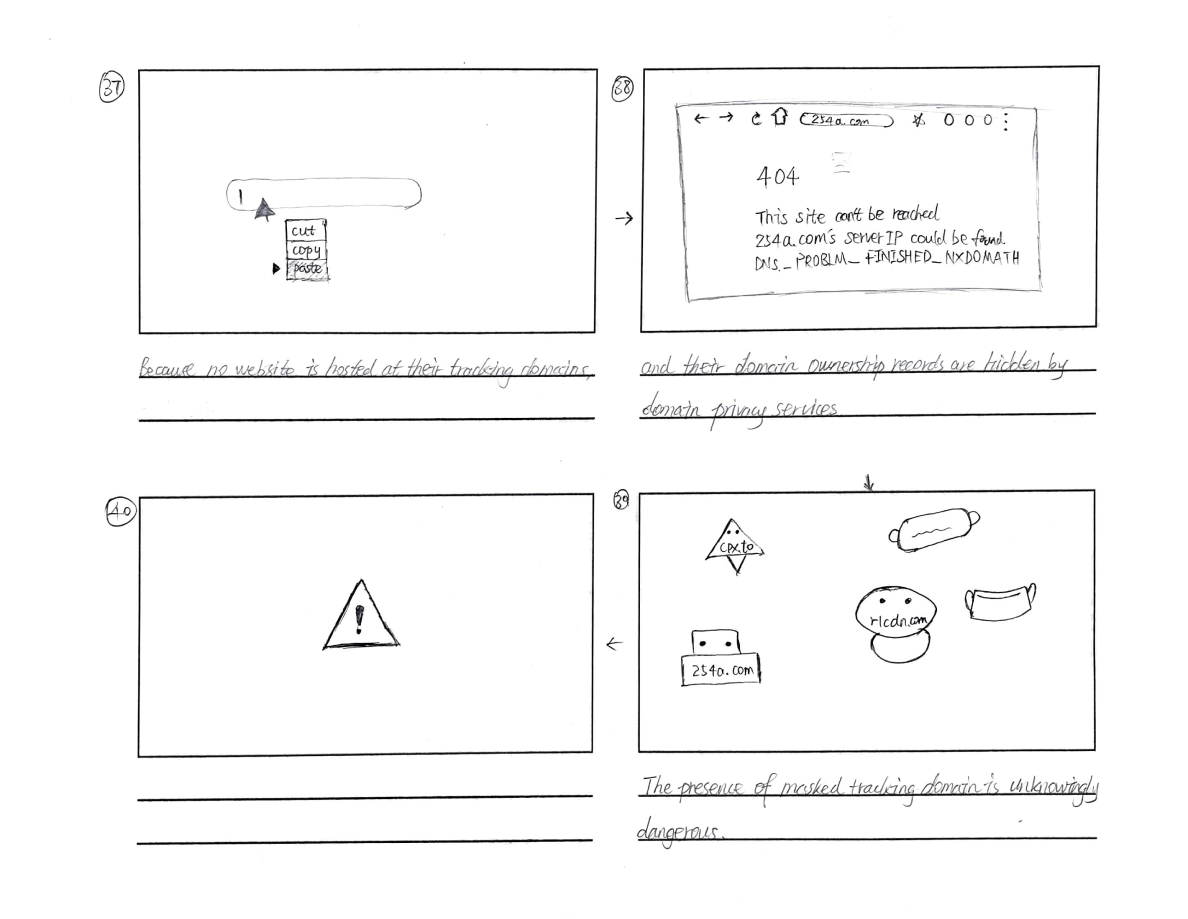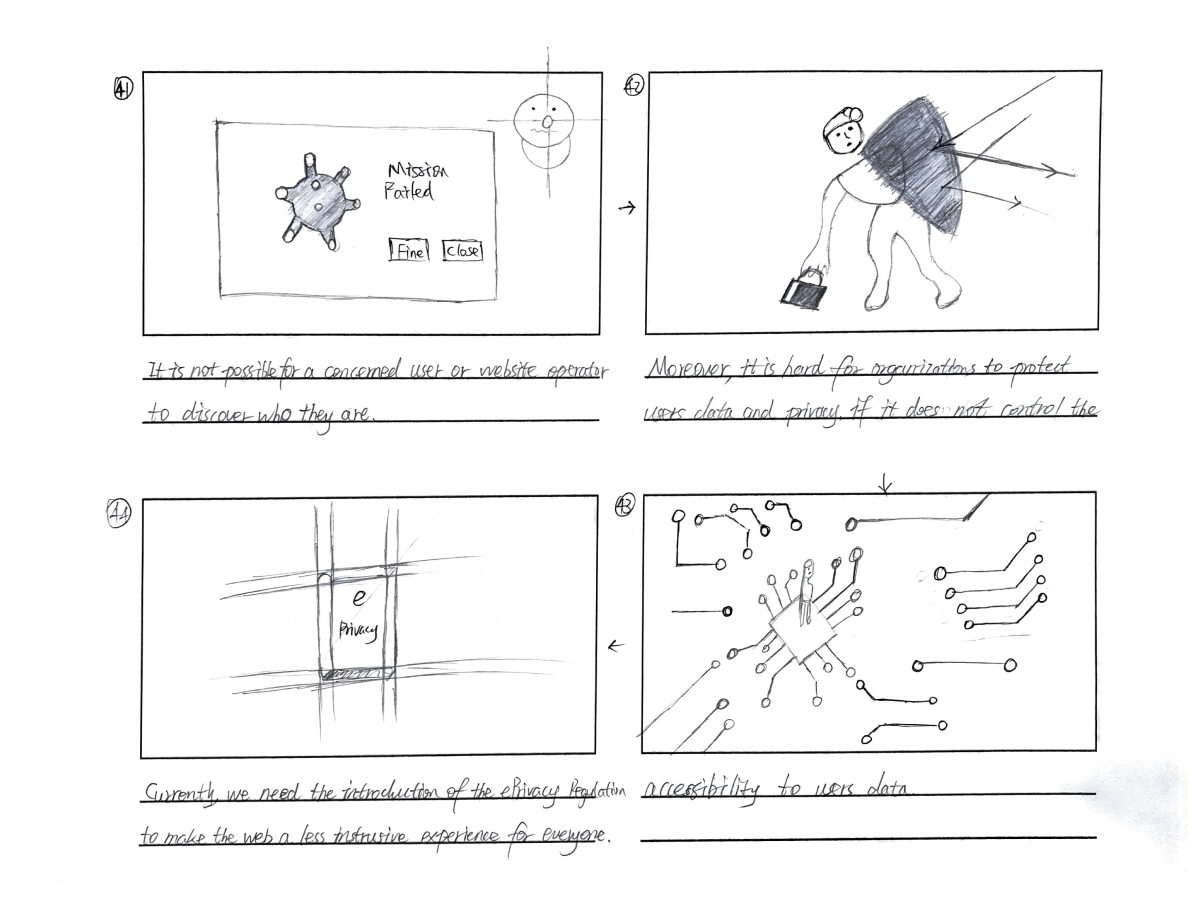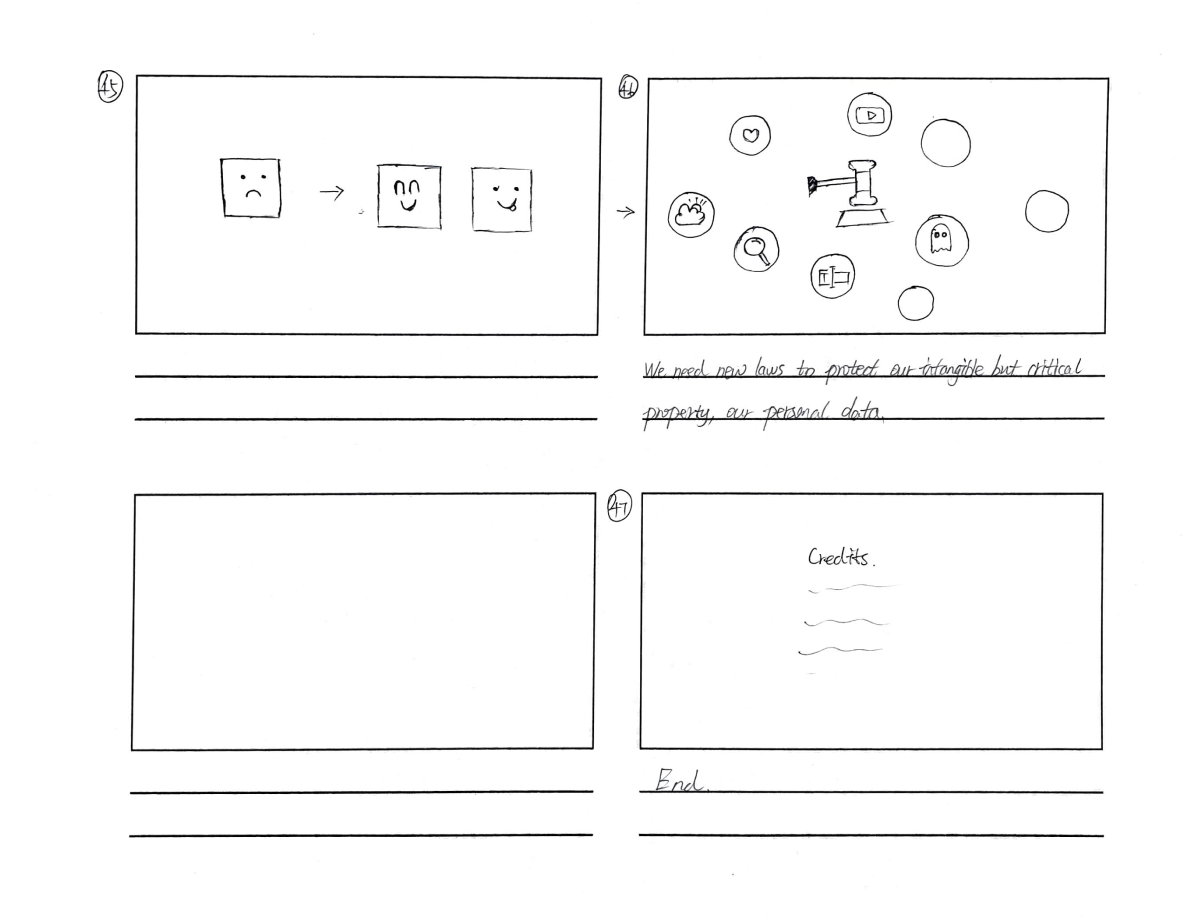Virtual Property
An educational motion graphic on web cookies | By Hao Ge
Virtual Property is a short animation expanding users' perspective on web cookies. Virtual Property tells users what advantages cookies bring to us, and the potential risk it causes.
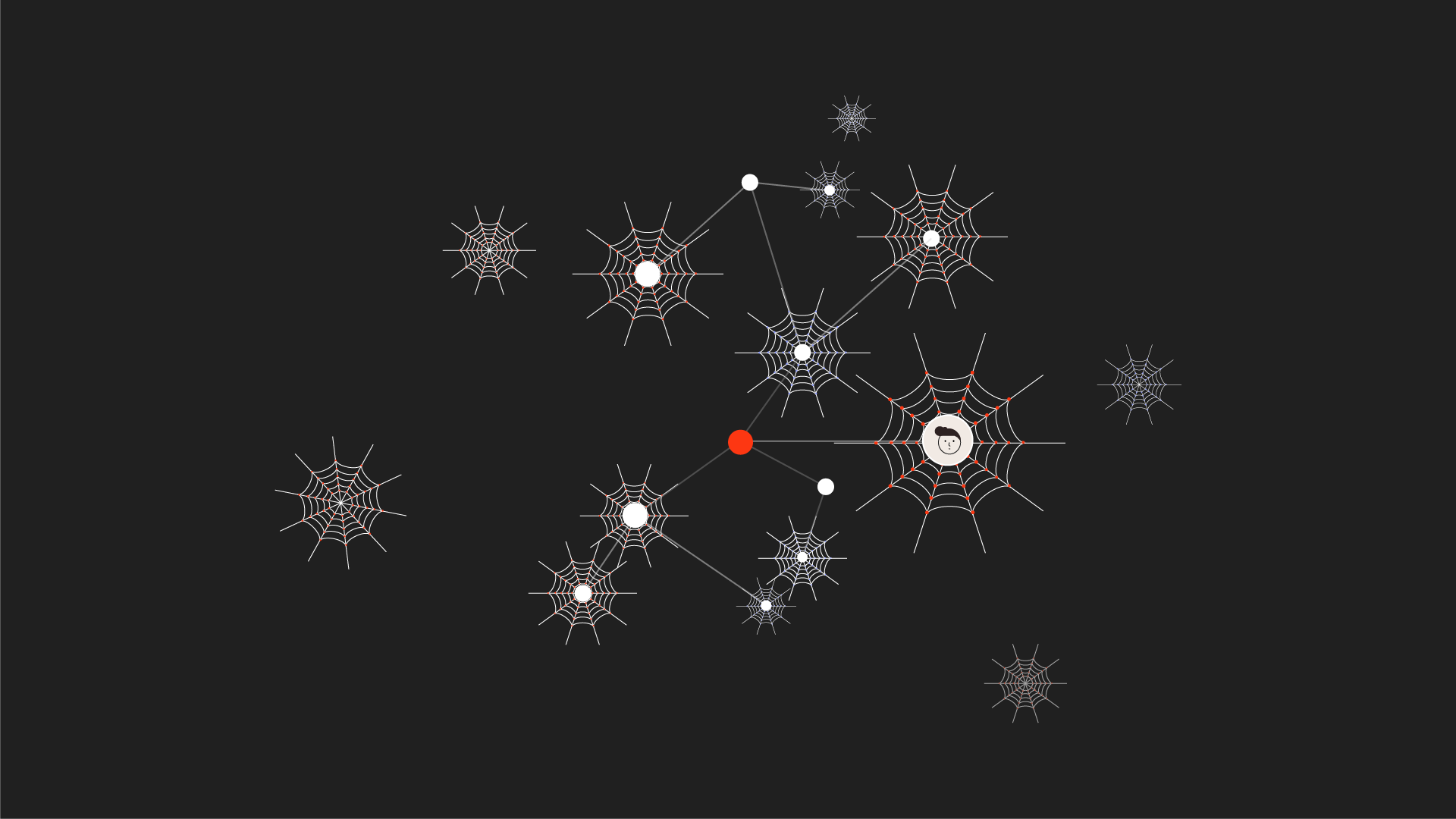
The Problem
Ad tech companies are making money from users' data, but users are not aware of it.
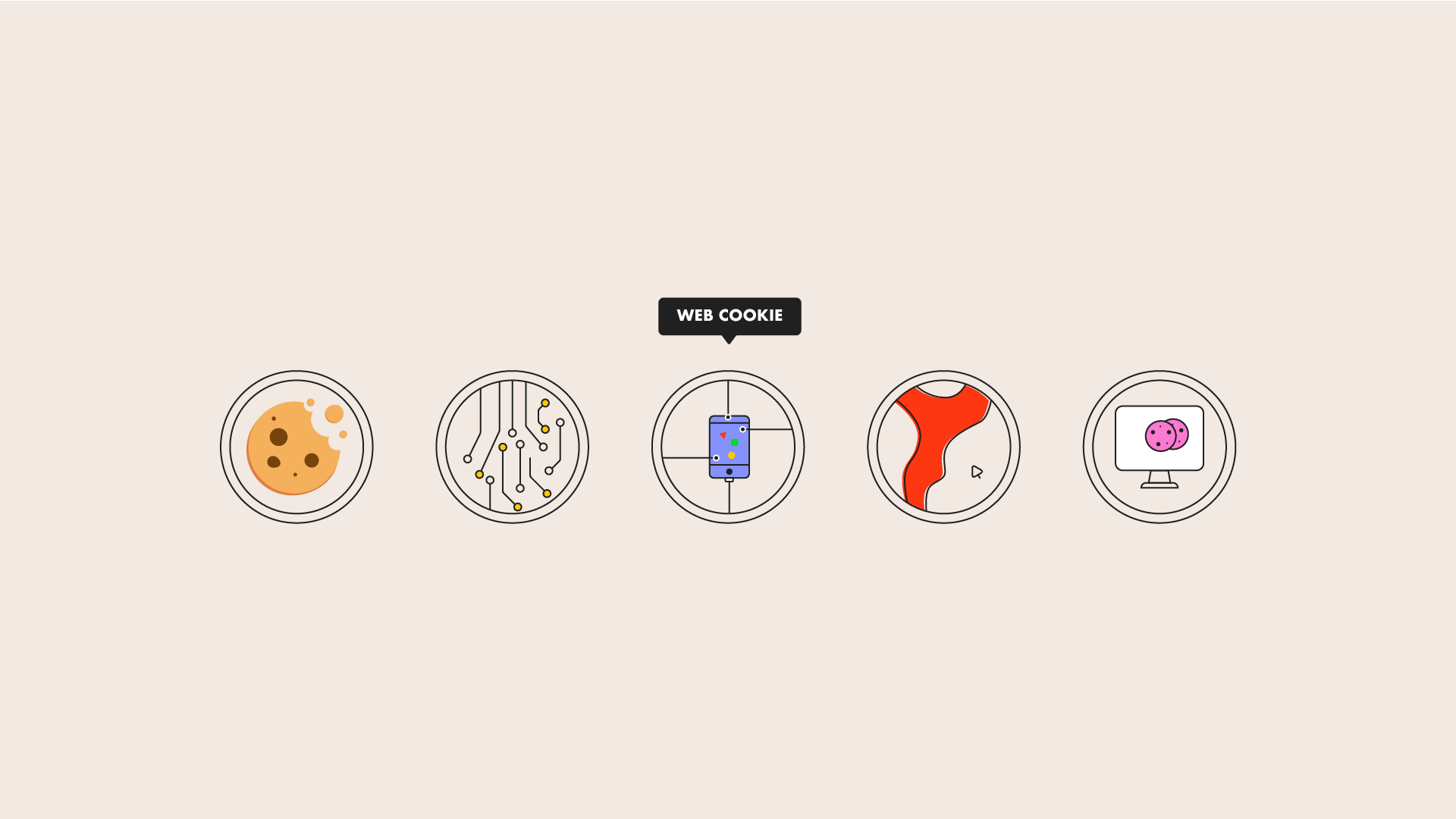
The Solution
Create an educational motion graphic expanding users' perspective on web cookies. Make users treat personal data as property.
What is an HTTP cookie?
An HTTP cookie is a small piece of data sent from a website and stored on the user’s computer. Cookies are designed to remember stateful information, such as items added in the shopping cart in an online store, shipping address input in the profile, payment information. Cookies record users’ browsing activity (including clicking particular buttons, logging in, recording which pages were visited by the user.
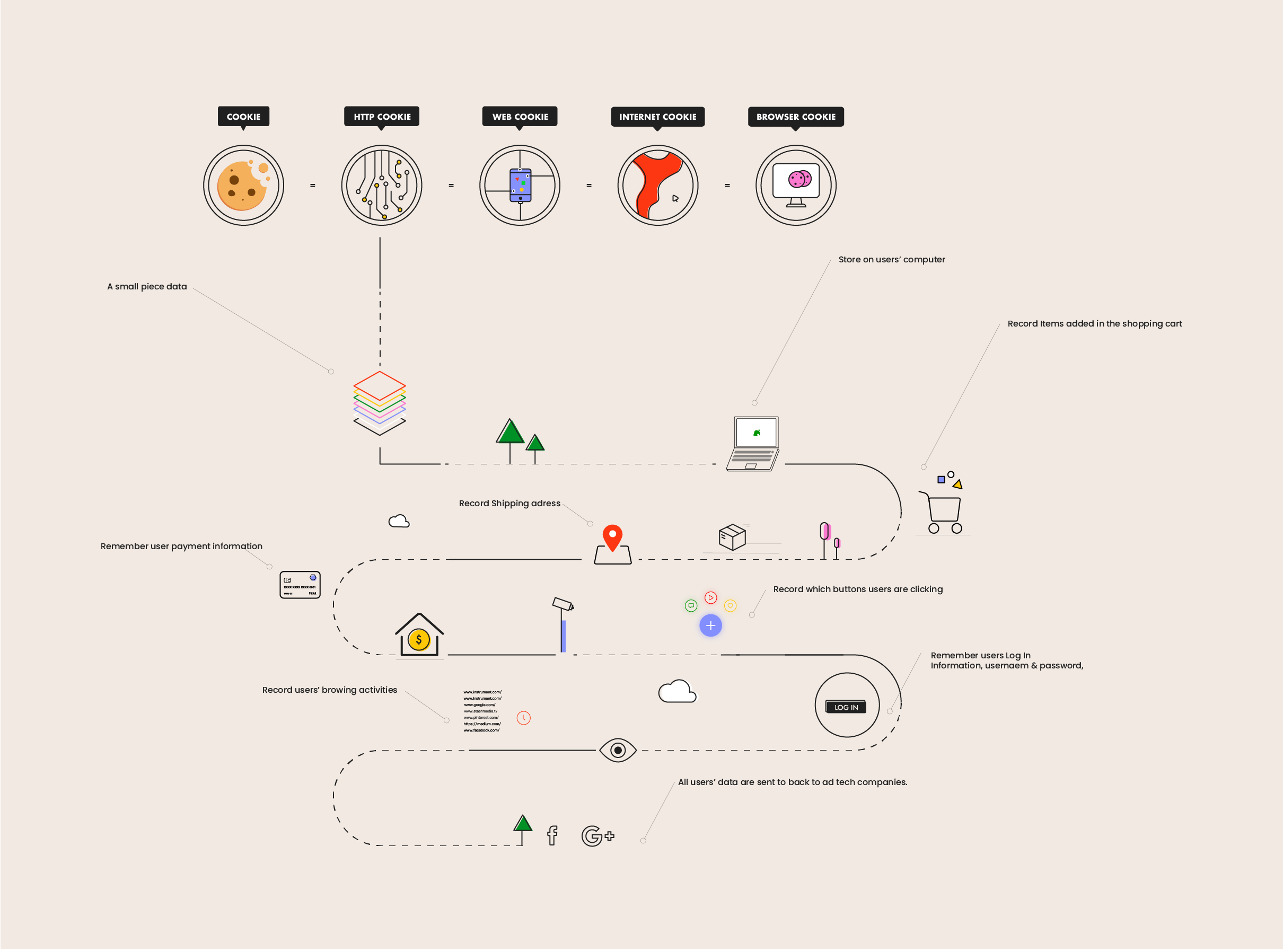
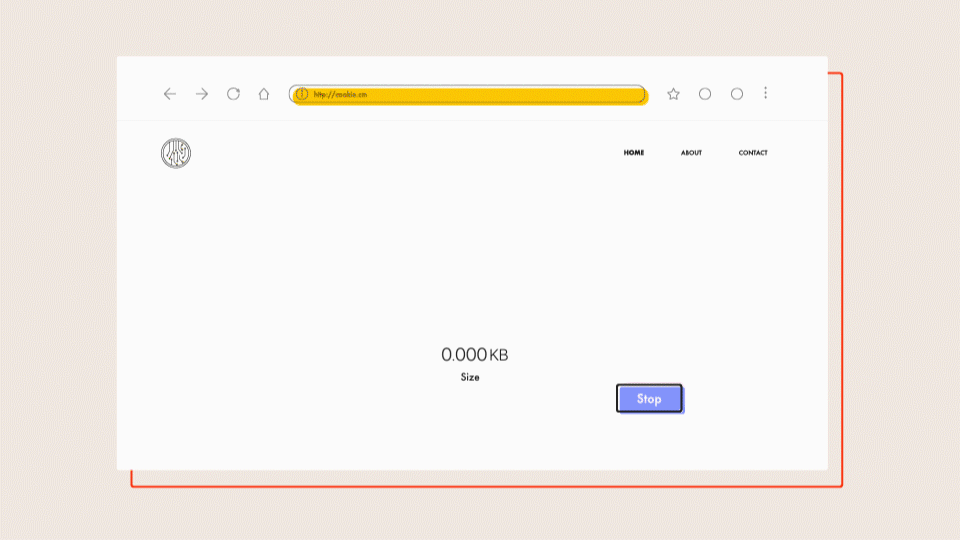
An HTTP cookie is a small piece of data.
The maximum size of a web cookie is 4093 bytes. It includes cookies name, value, expiry date, etc. The web cookies are stored on the users' computers.
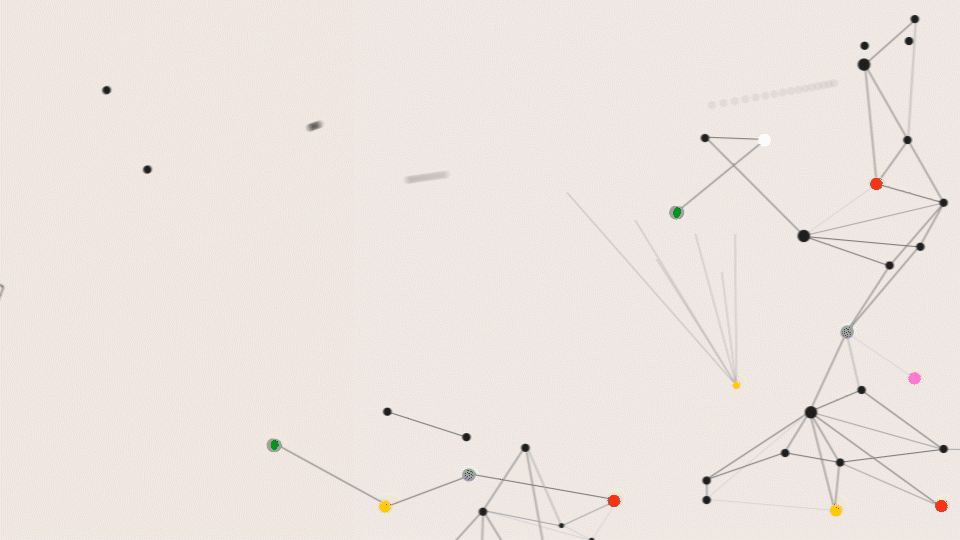
A web cookie records stateful information.
The cookie record the items added in the shopping cart. It could be the shipping address. It could be users' payment information.

Cookies record users’ browsing activity.
It records what kind of buttons users click on one page. It records which pages are visited by users. It records the login information so that the user can quickly login next time.
Cookie Plus ?????
- Based on the specific data sent back, ad tech companies like Google, Facebook, Twitter can monetize them by targeting users with advertisements.
- Users have unlimited free access to core products of high tech companies like Instagram, Messenger, Gmail, and Google maps, etc.
- The trade between users and high tech companies is a double win because users can enjoy free service and ad tech companies make money from users’ data.
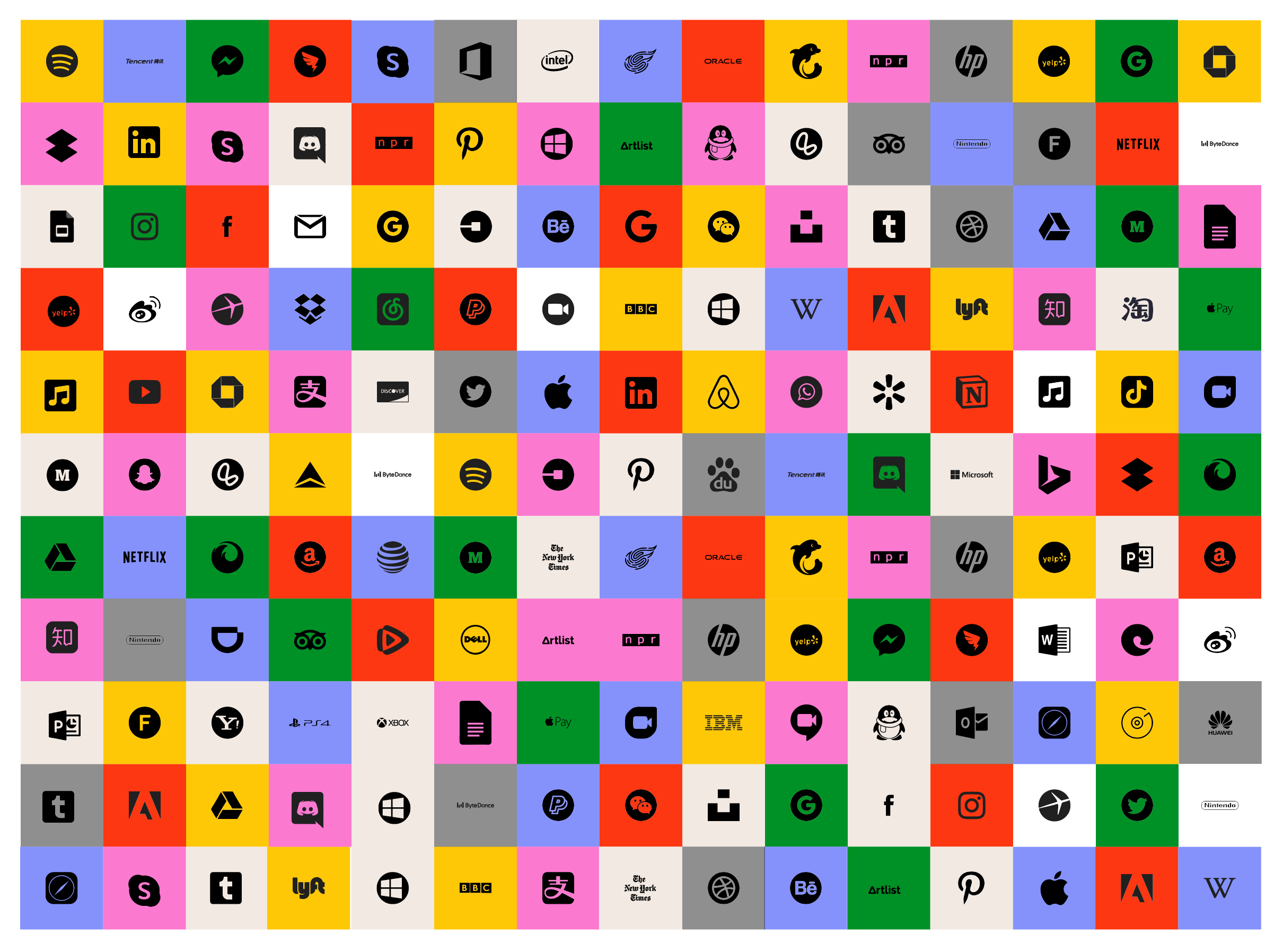

Target uers with advertisements.
After receiving users' data, ad tech companies analyze them and target users with specific advertisements. Thus, they can make huge money from users' data.

Unlimited free access to core products
High tech companies collect users' data and monetize them. In return, users have unlimited free access to core products, like Instagram, Facebook, Twiter, etc.

A double win trade.
There are so many digital products online, and users can use them for free. Ad tech companies collect users' data and make money from it. This kind of trade is a double win.
Cookie Minus ???
- However, the worst situation is that some ad tech companies are extensively tracking users beyond basic ads, and vulnerable users are unknowingly being tracked.
- There exist many masked tracking domains hidden in official government websites.
- It is not possible for a concerned user or website operator to discover who they are.
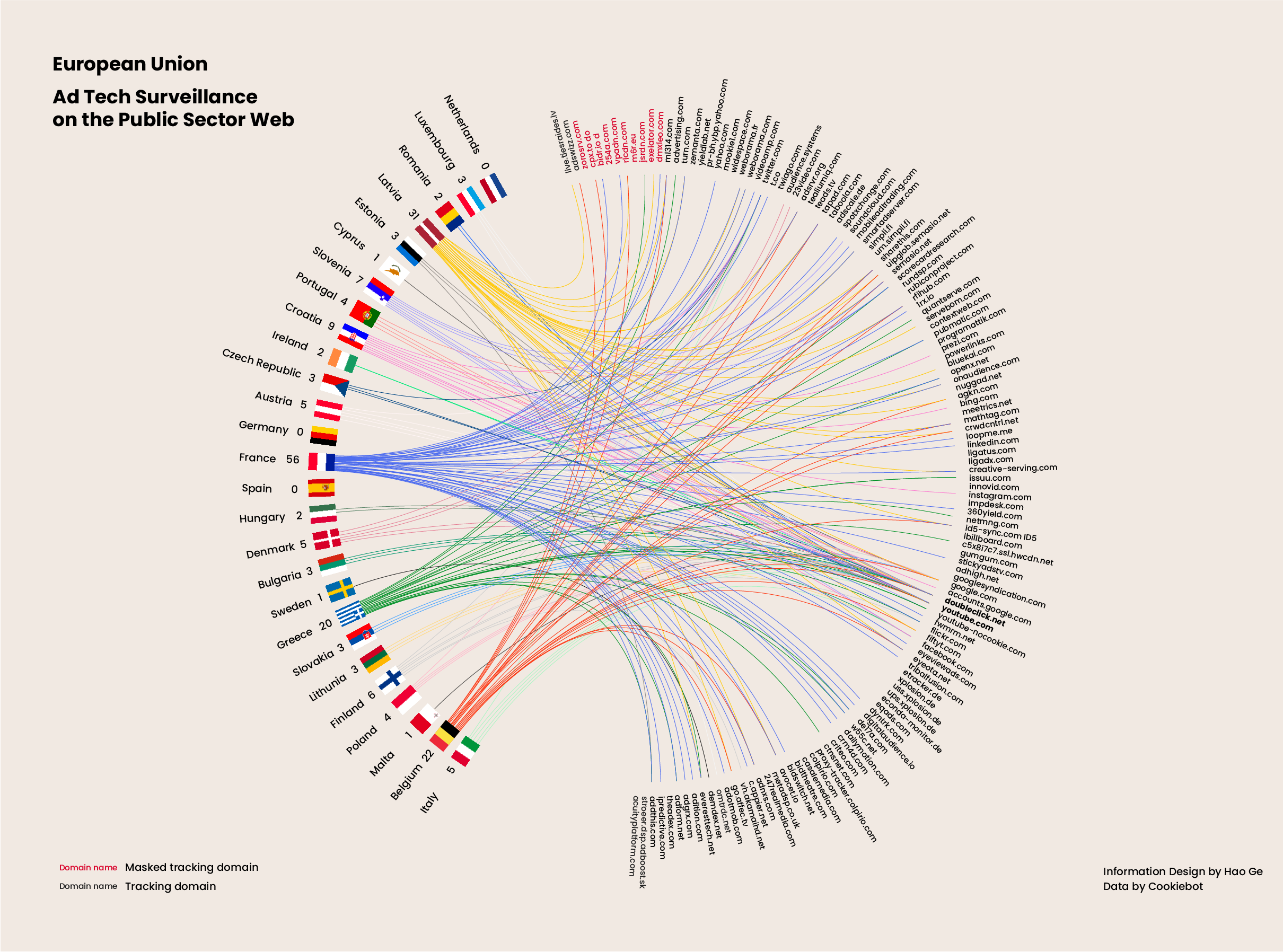

Tech companies are tracking users extensively.
Besides these necessary advertisements, ad tech companies track users' other behaviors. They save users' private information through hidden privacy terms. In most situations, users have no idea about that.

It is challenging to recognize the masked identity.
According to research by cookiebot, there are ten hidden tracking domains are receiving data illegally from the EU government and health service websites. Concerned users can't find who they are.

It is hard to protect users' data.
With increasing websites and applications, users have less privacy. It is a difficult job for the website operator to control the accessibility to users' data. And users have not realized the danger that the exposure of personal data brings.
Blueprint ????
Currently, we need the introduction of the ePrivacy Regulation to make the web a less intrusive experience for everyone. We need new laws to protect our intangible but critical property, our personal data. Meanwhile, we should have a second thought before we click the ‘agree’ button on a new webpage or a mobile application.


Tech companies are tracking users extensively.
Besides these necessary advertisements, ad tech companies track users' other behaviors. They save users' private information through hidden privacy terms. In most situations, users have no idea about that.
Animation Process
Voiceover and BGM
Audio by Dylan McClosky | Music by MotionElements
The tone of animation is formal and educational. Motivational and relaxing music can help users to absorb the content. The combined sound of guitar and drums enhances the convince of animation. The speech speed is not slow, but Dylan's voice is attractive and leaves the audience a good impression. Click the link to the 'text' of Voiceover.
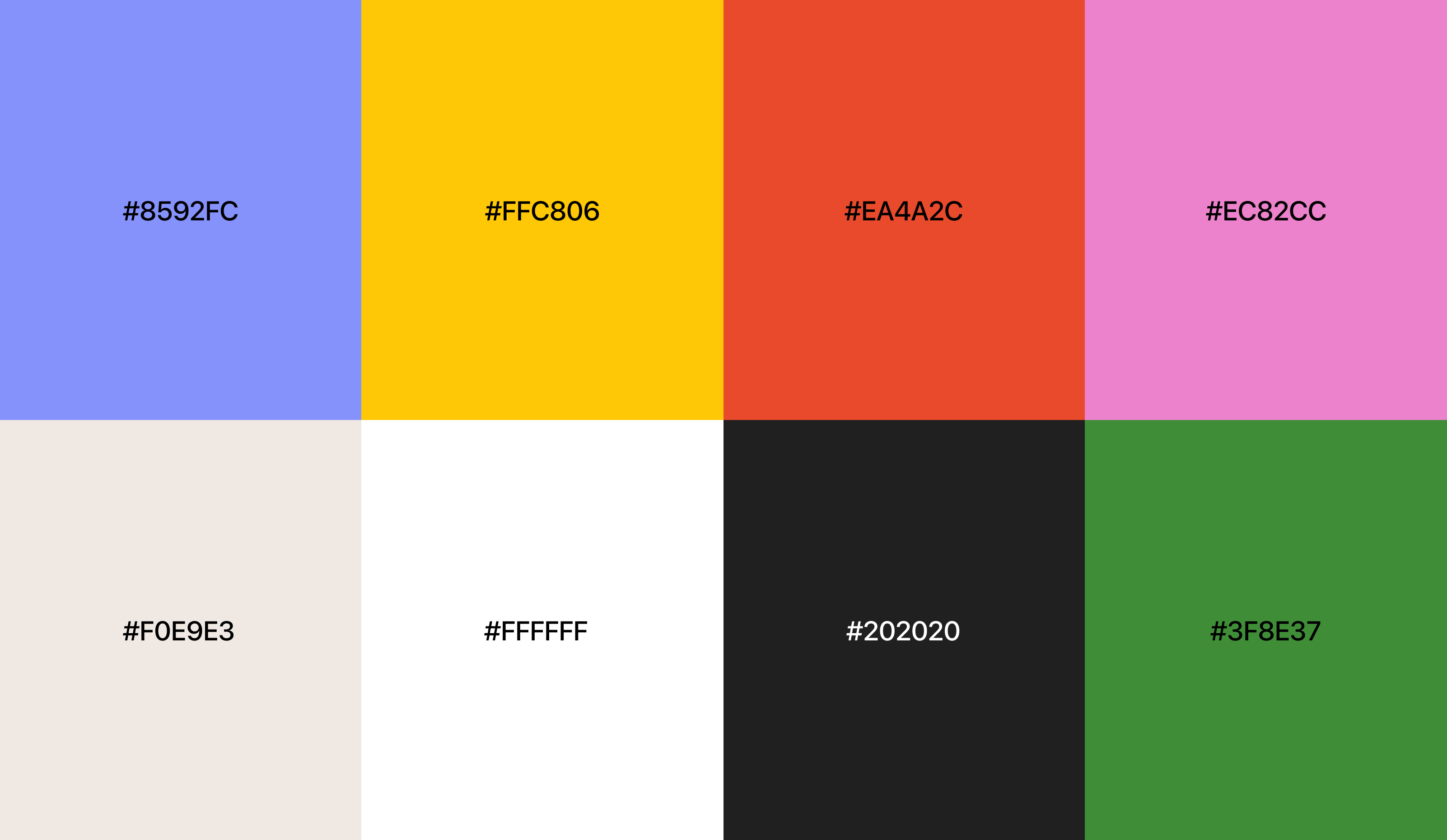
Color Scheme
To match the relaxing atmosphere, all color is light except the dark background. In all, six colors are applied.
Storyboard
Tell a keyframe
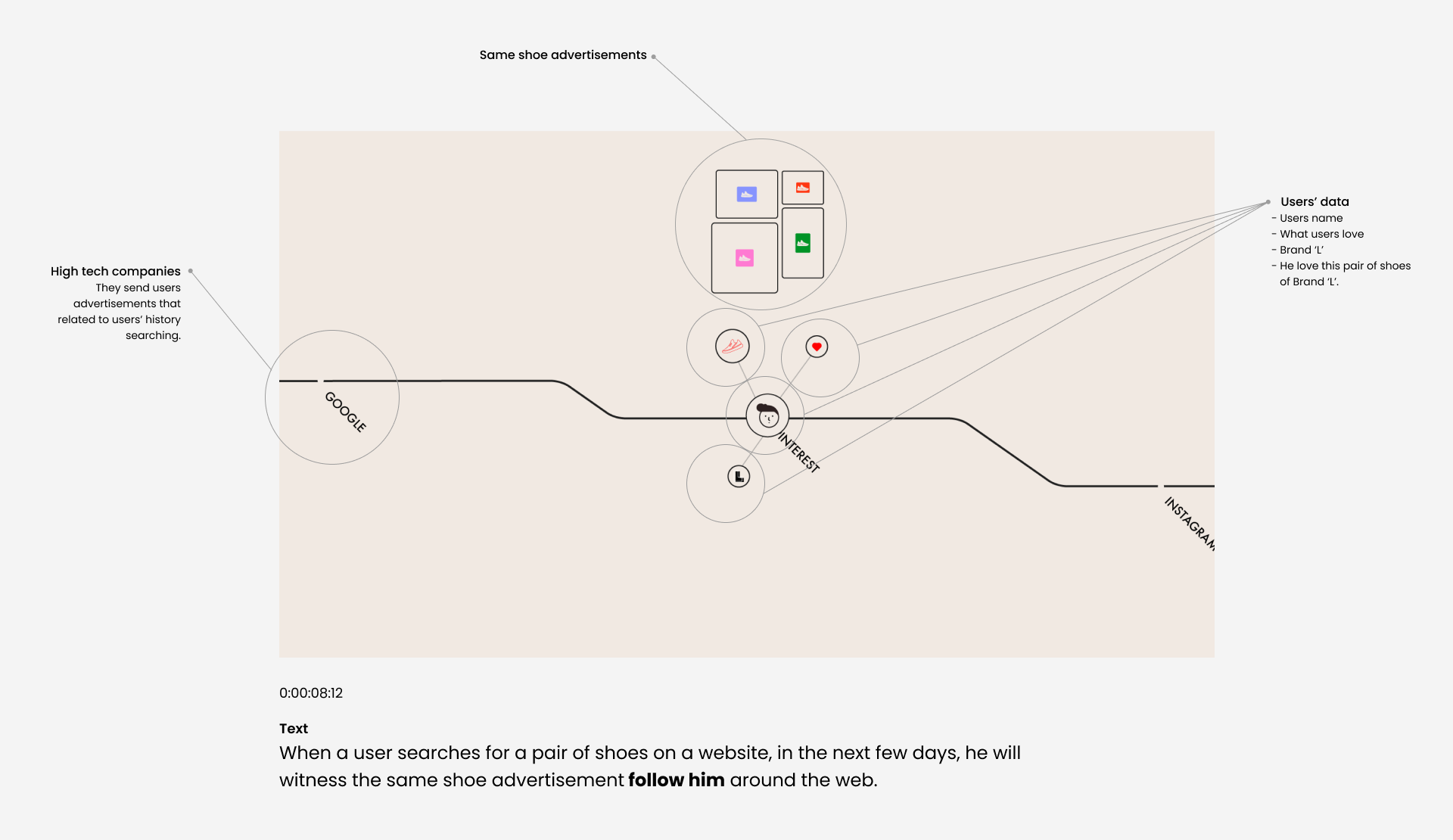
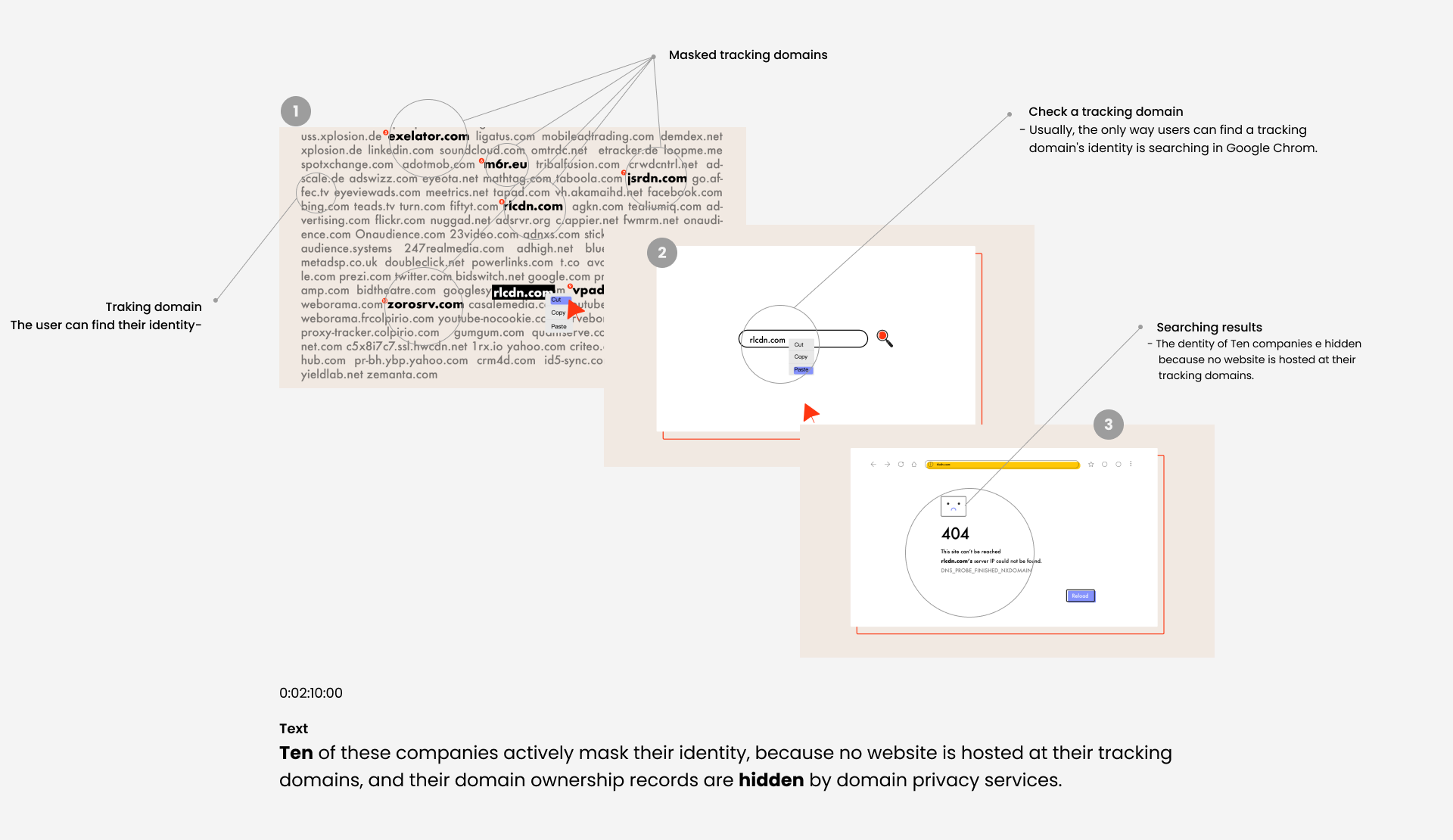
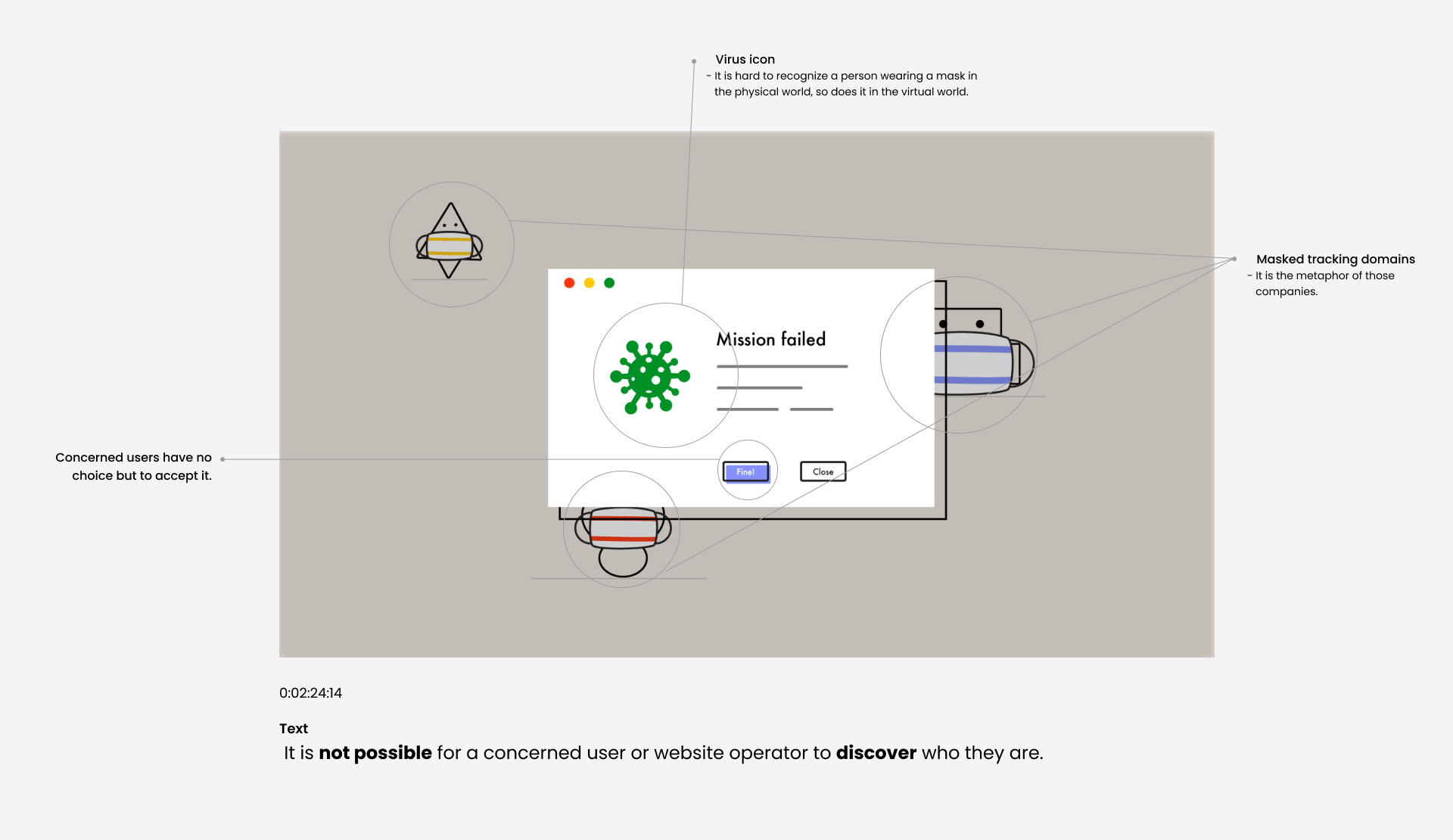
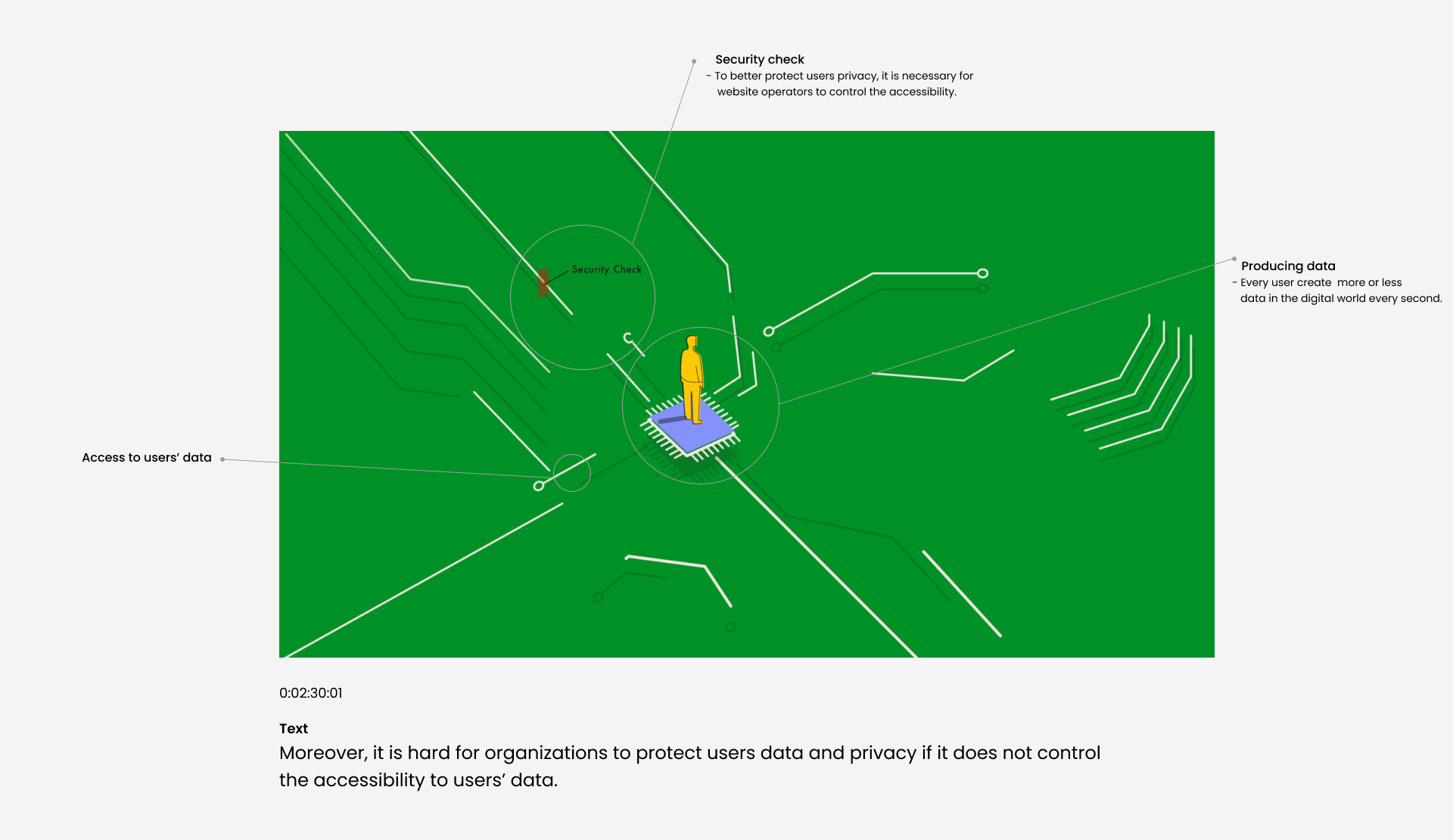
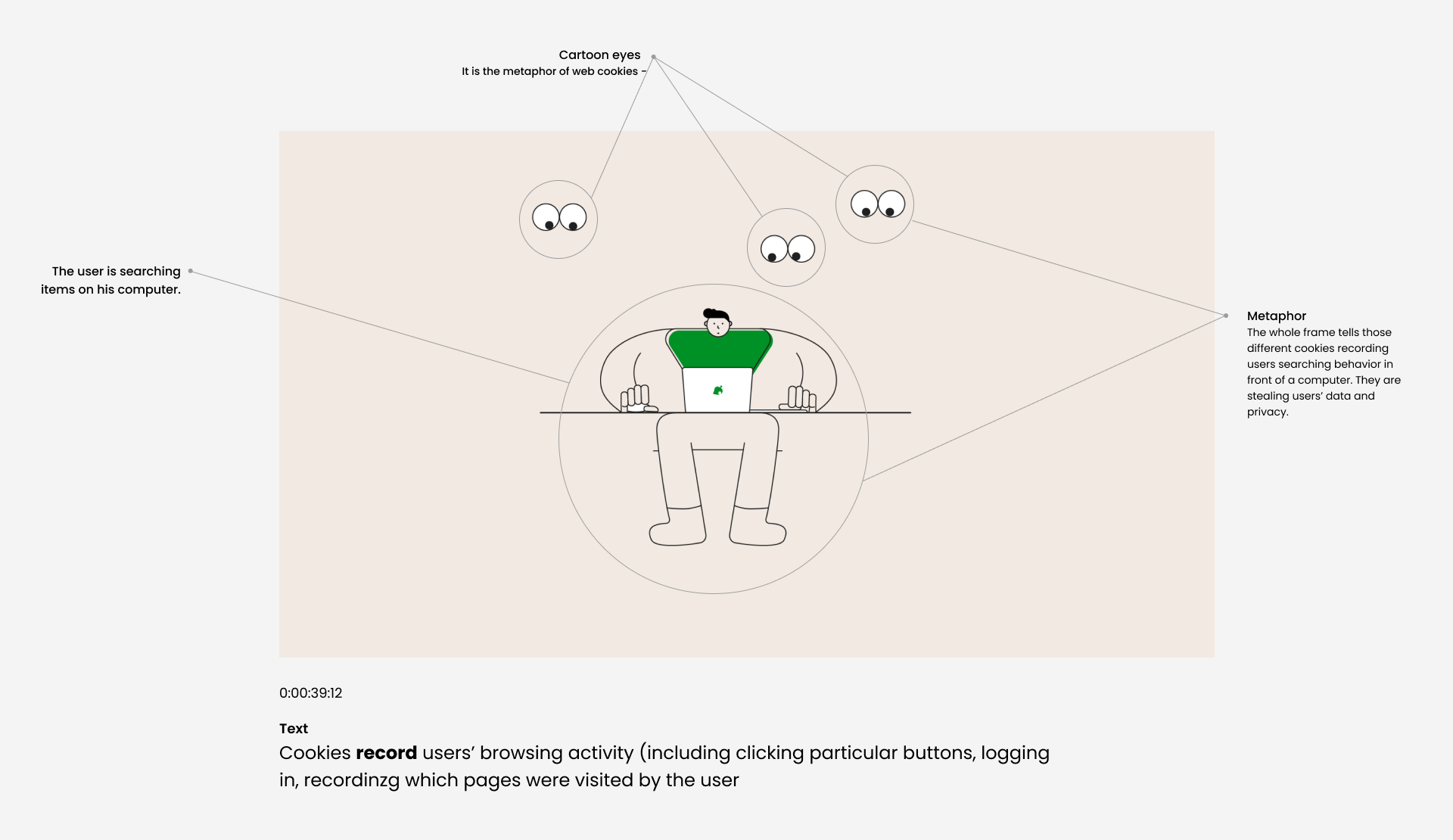
Applied Animation Principles

Ease In, Ease Out
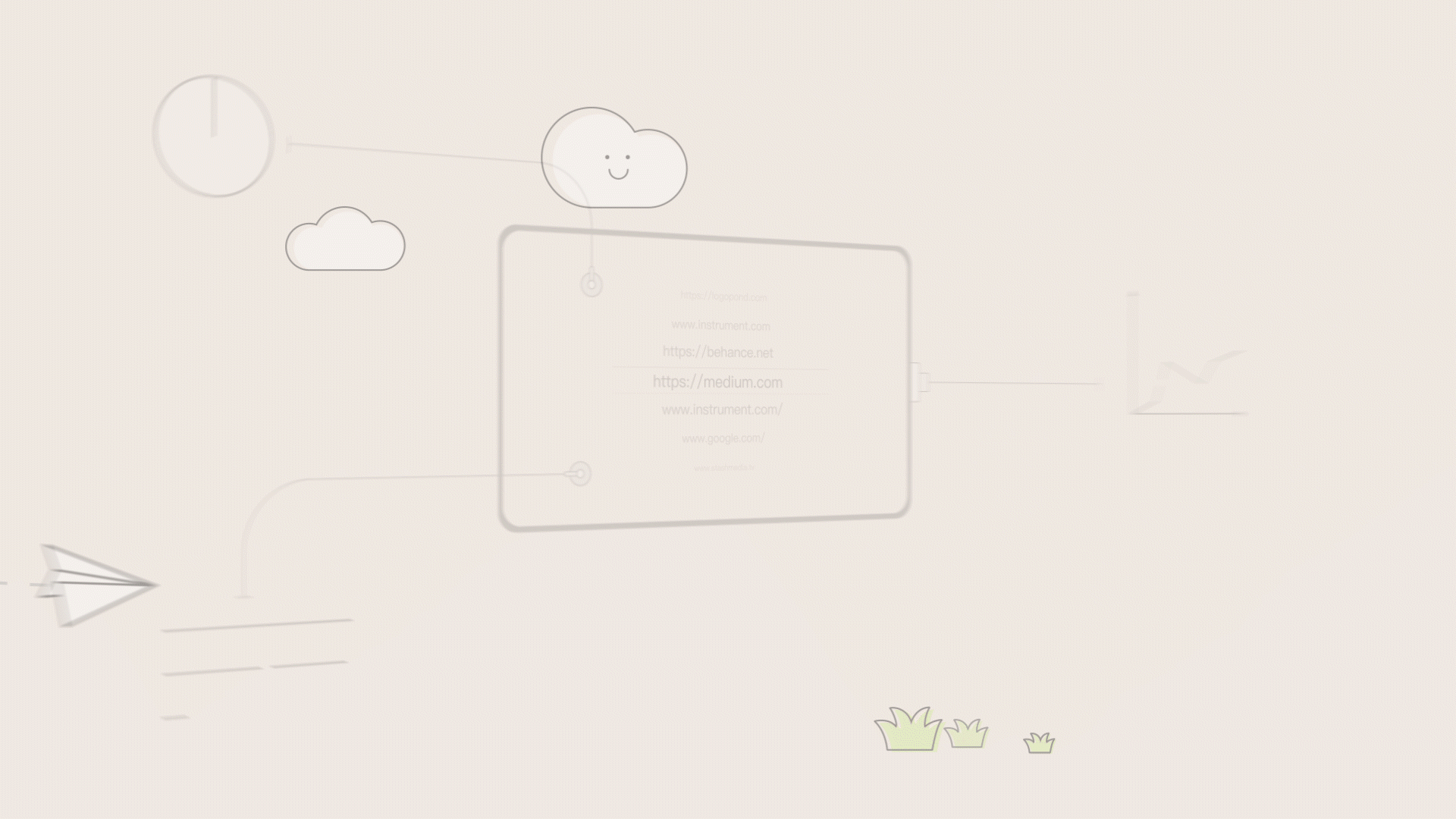
Anticipation

Arcs
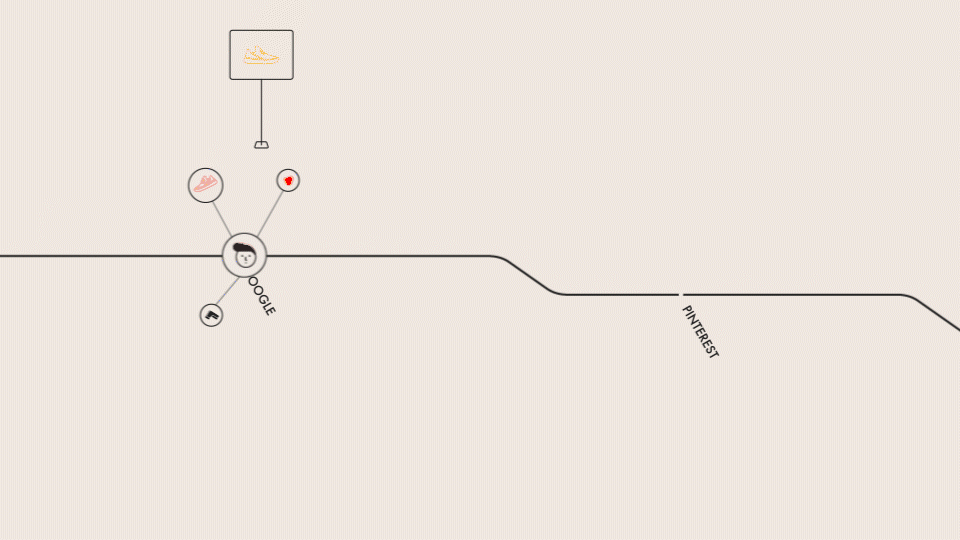
Secondary Action
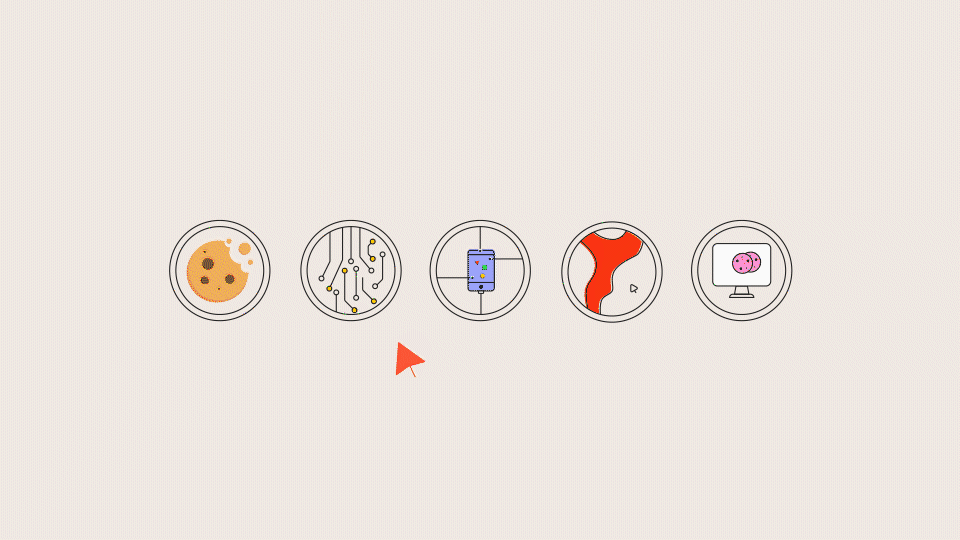
Timing

Follow-Through and Overlapping Action

Staging

Solid Drawing
Test and Survey
The whole video is divided into four chapters, so there are four short surveys. For each survey, there are about 6-7 responses. There are 3-4 questions in each survey and a short animation. The goal of the survey is to check whether the audience can fully understand web cookies through this educational motion graphic.
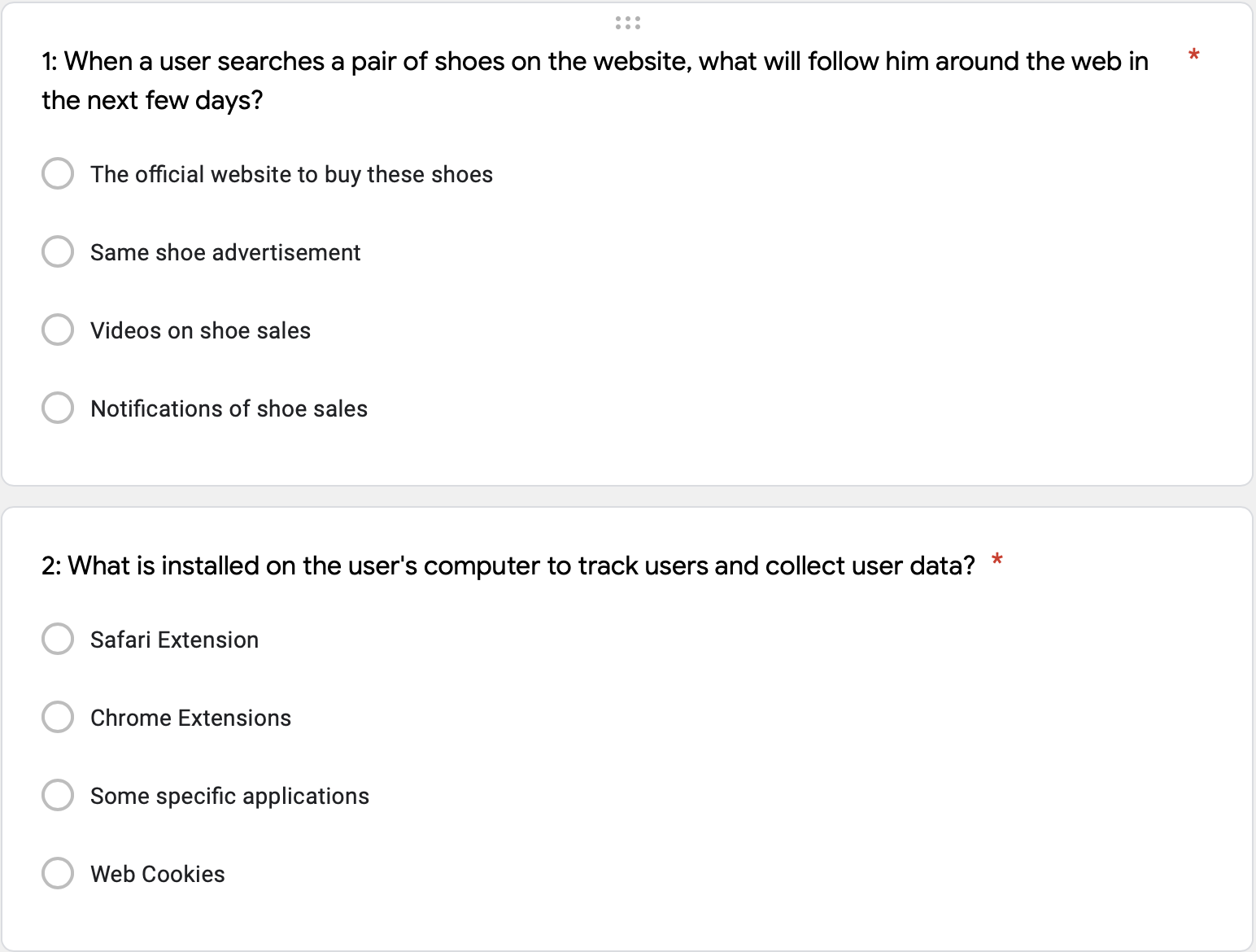
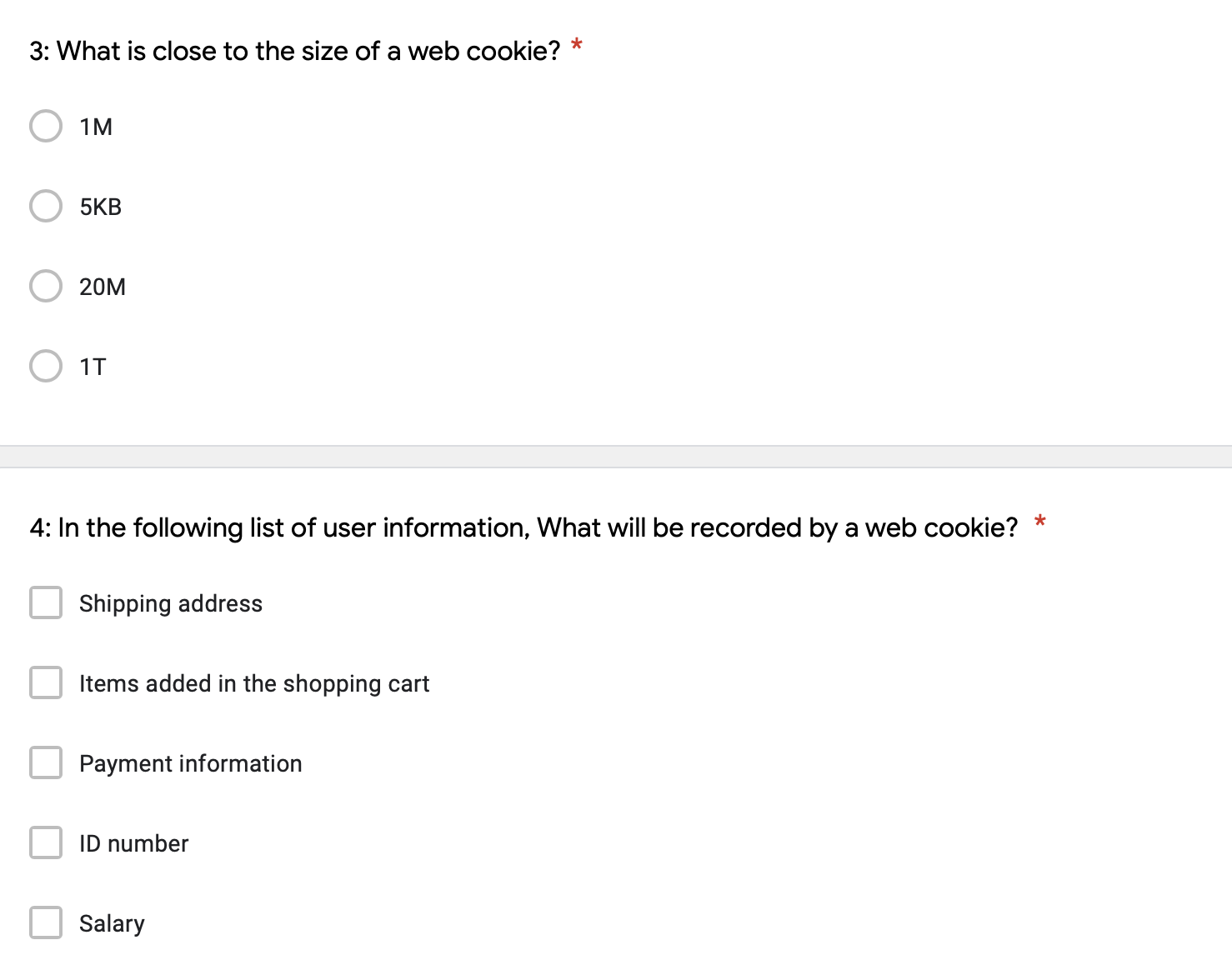
7 Responses
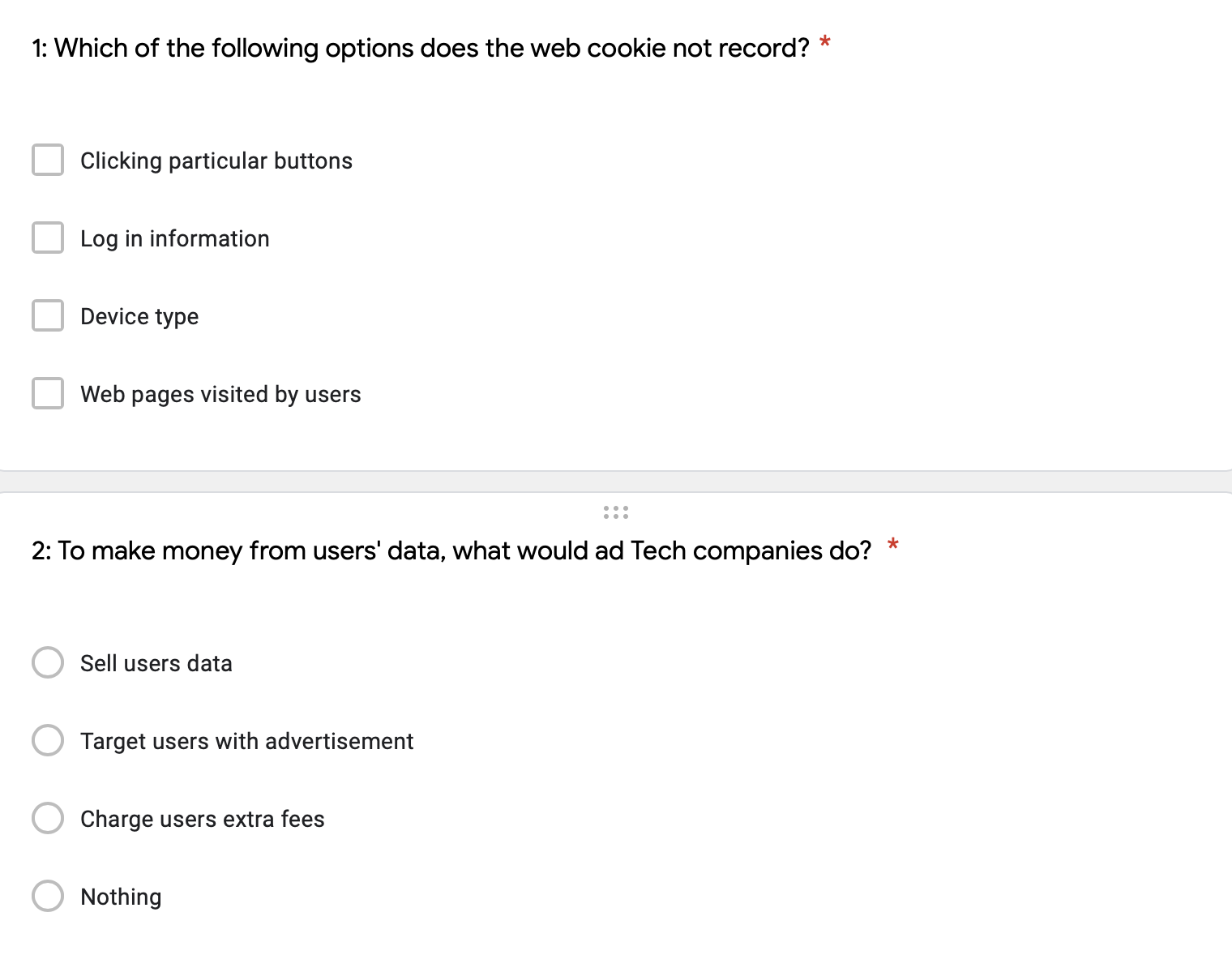
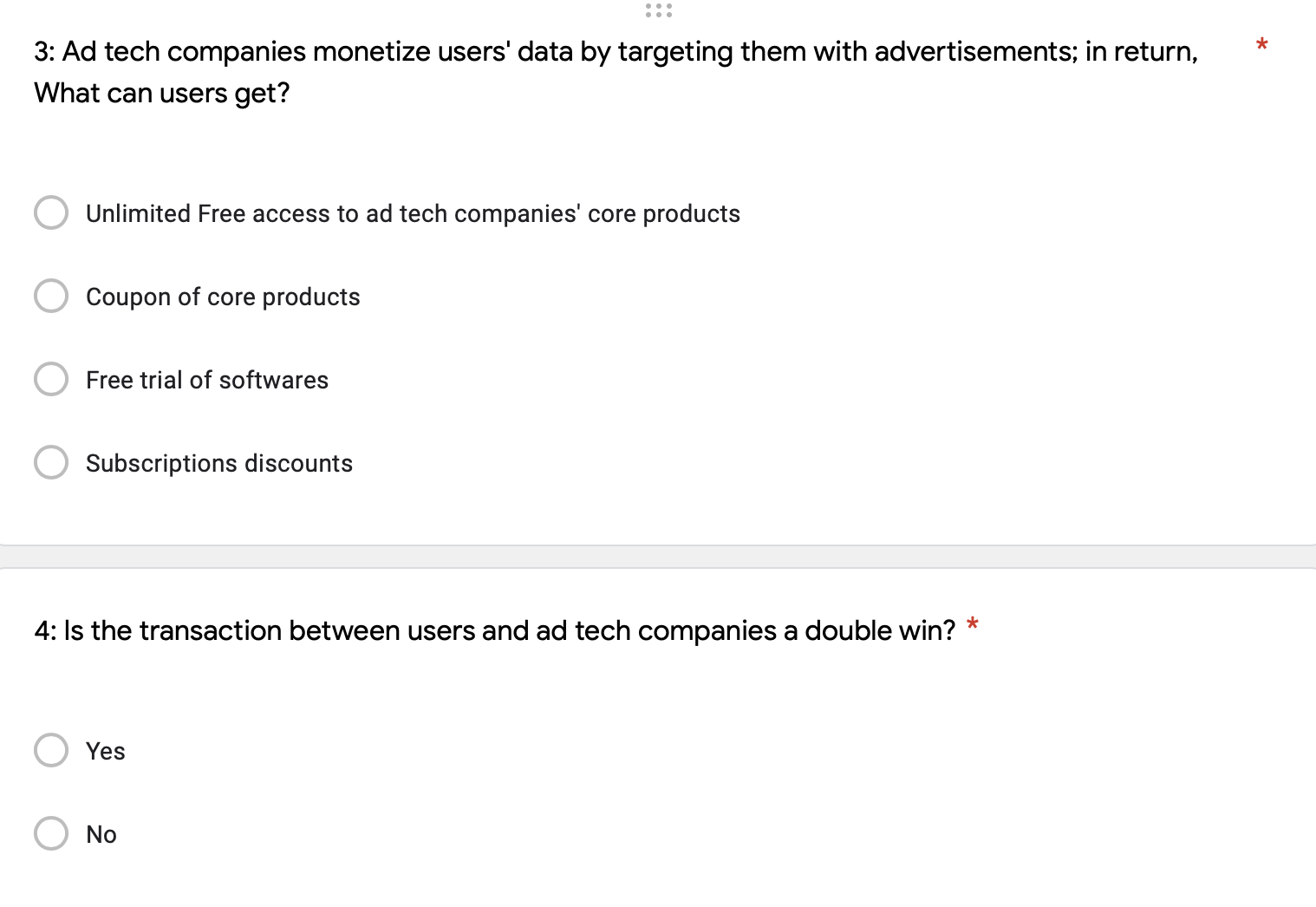
6 Responses
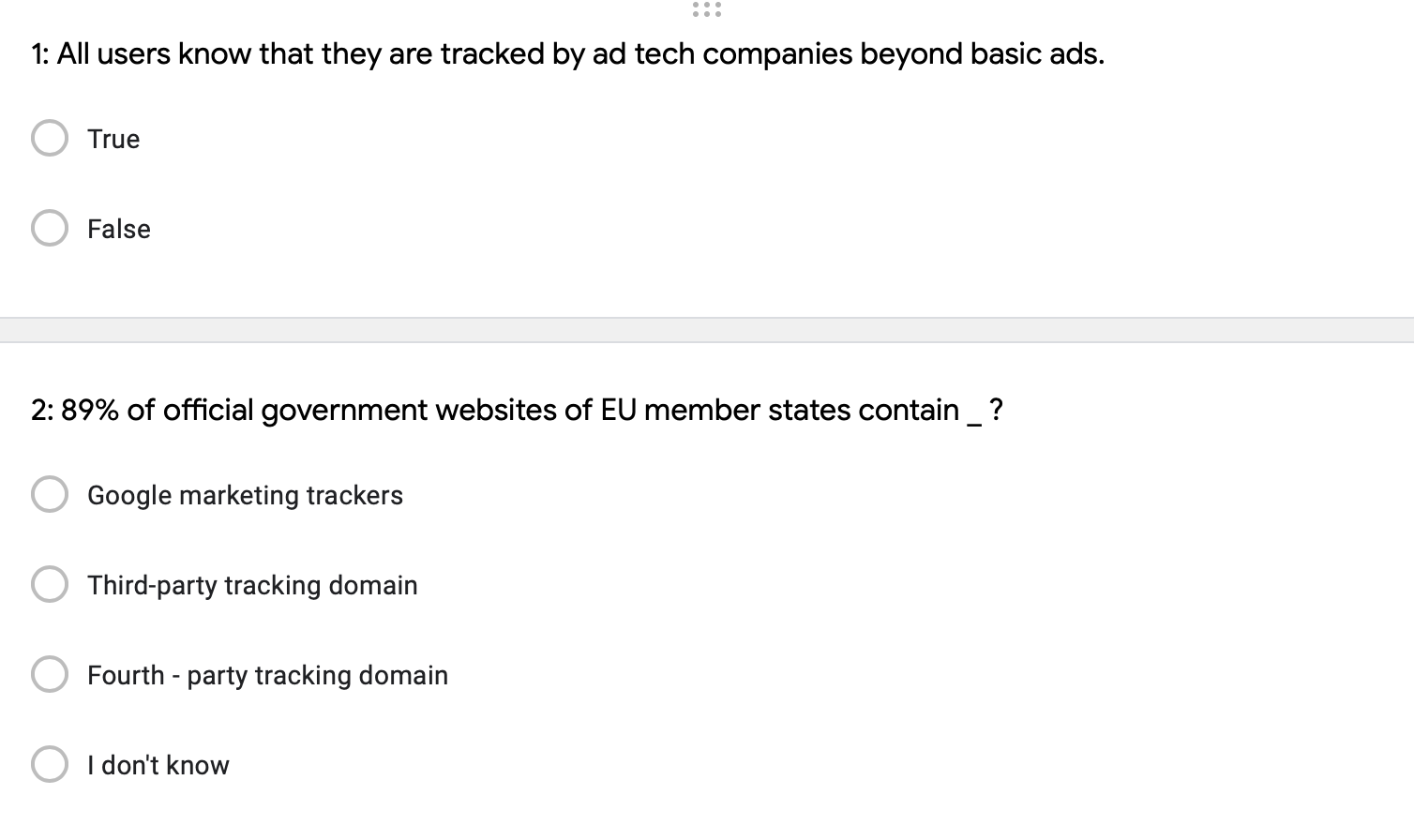

7 Responses
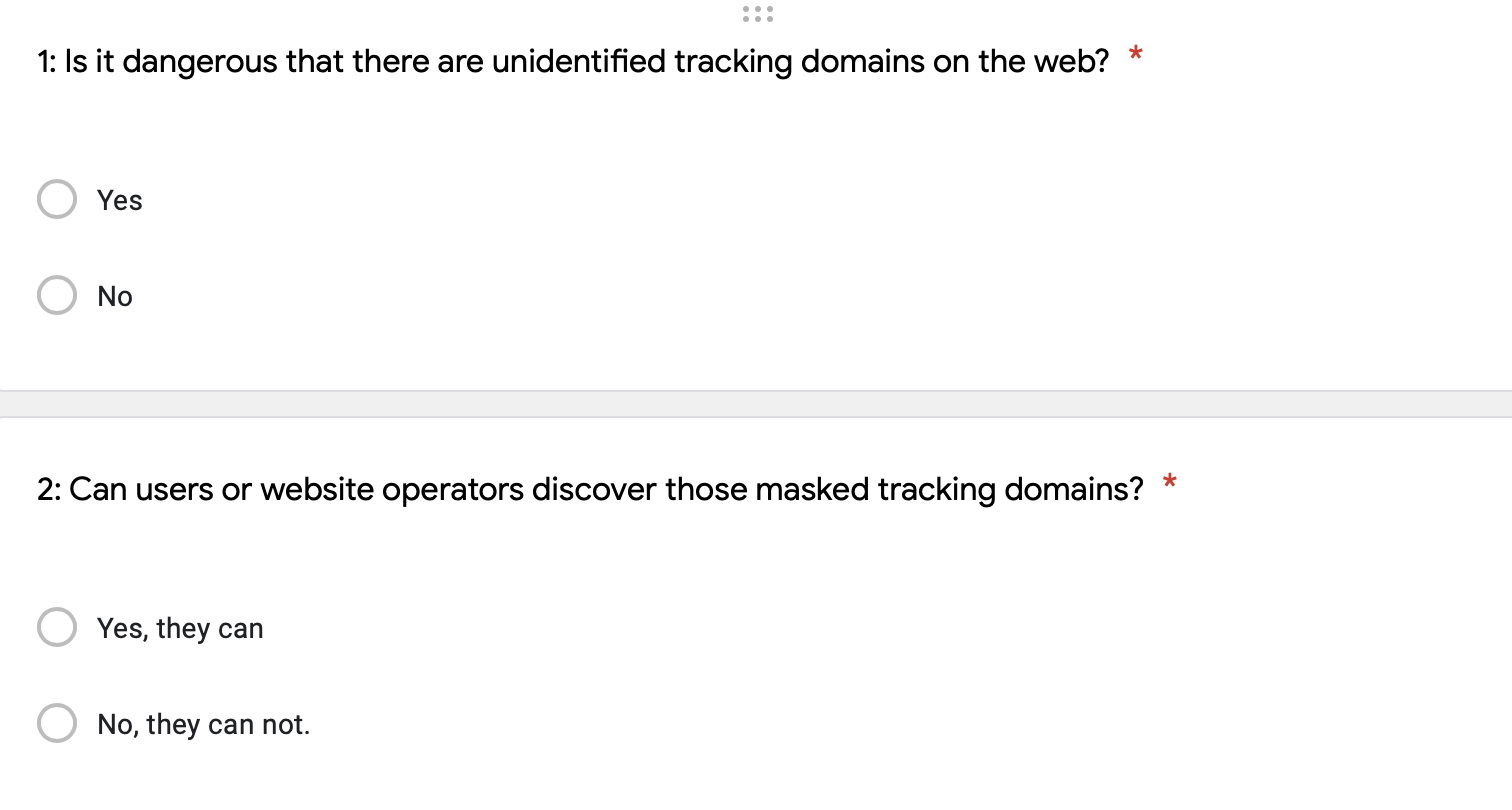
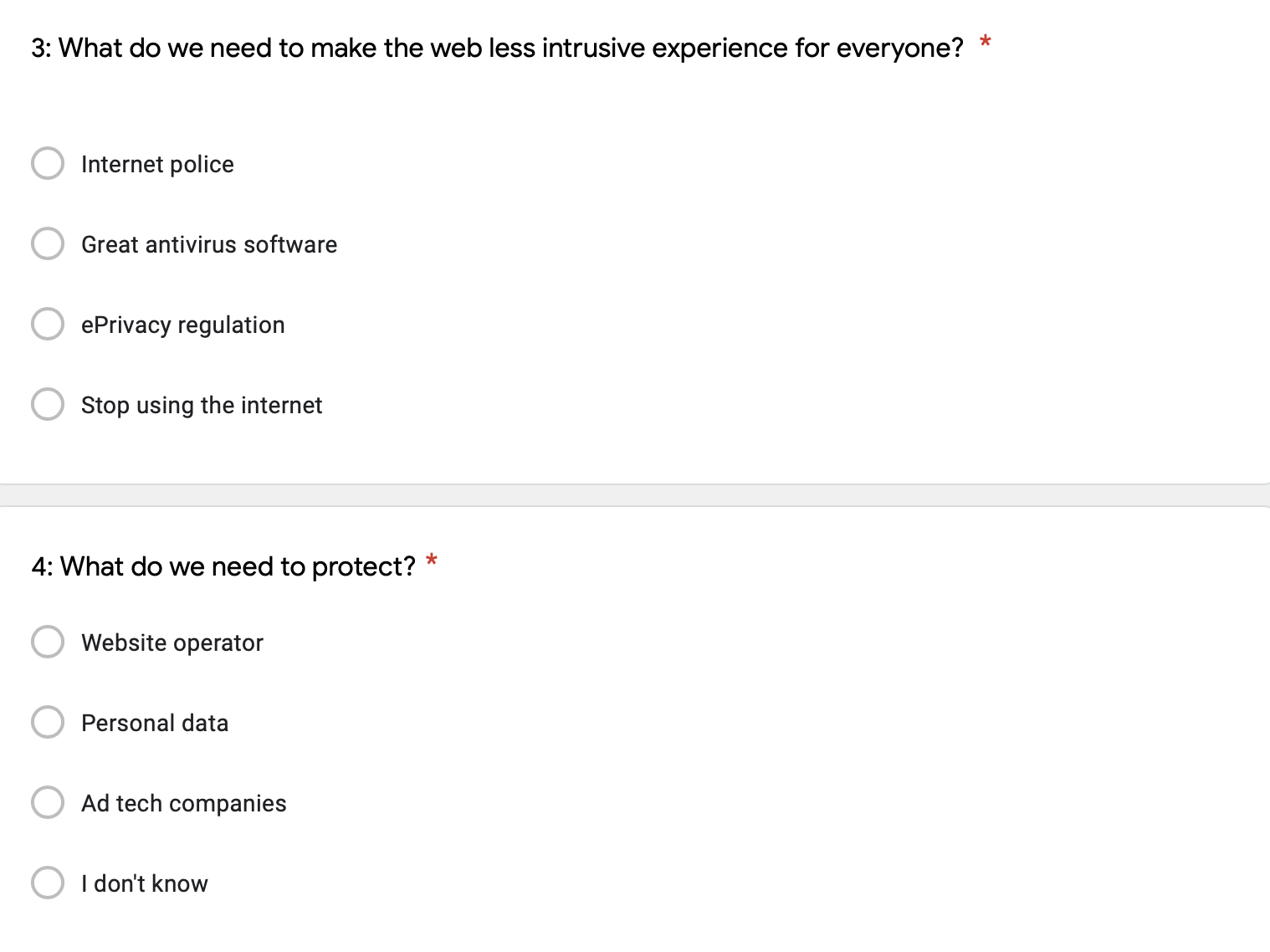
6 Responses
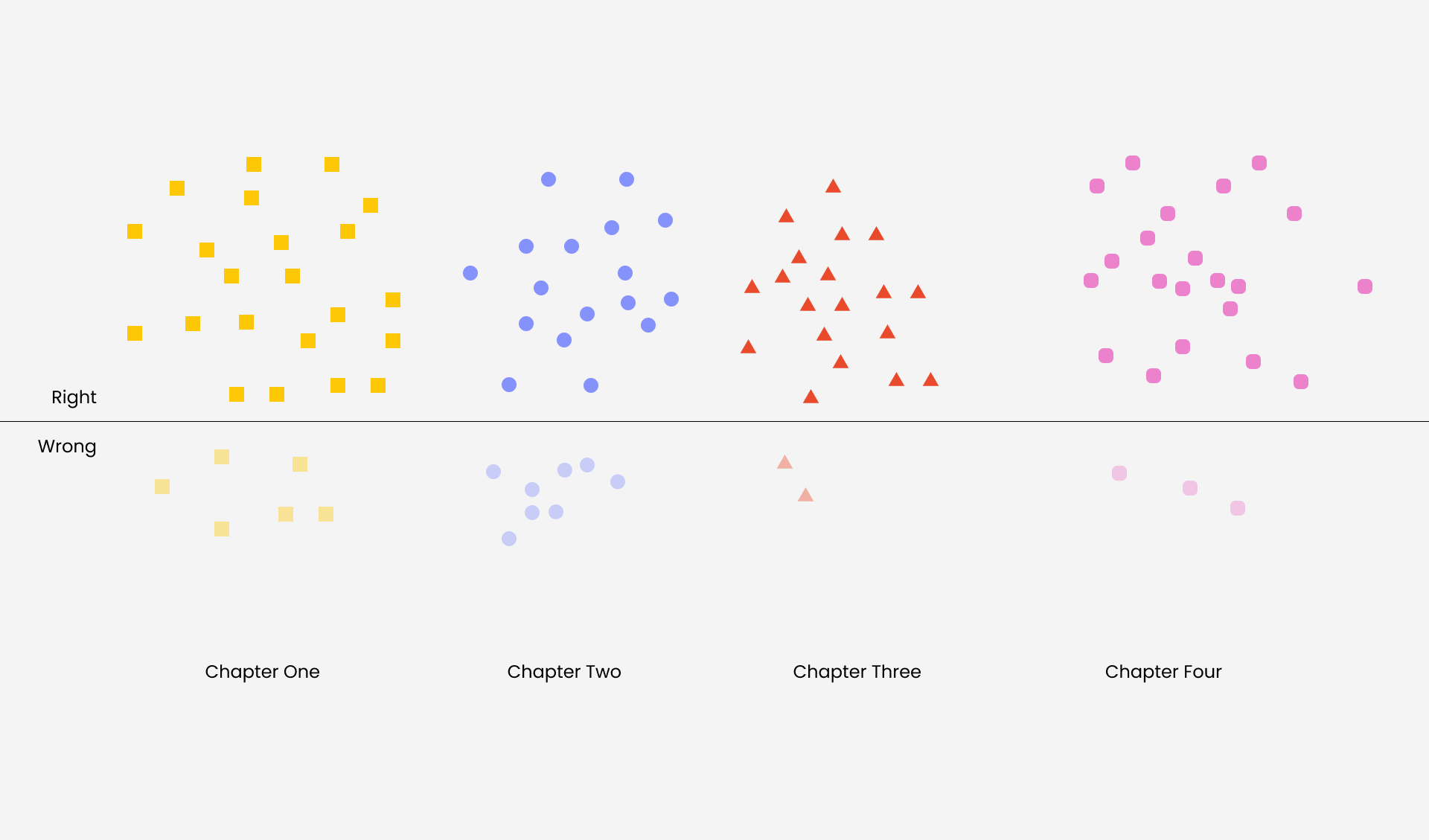
Survey Conclusion
In total, there are fifteen questions for the whole animation. The general result is positive. However, most users don't get that they have unlimited free access to tech companies' core products. I should stress that point in the future.
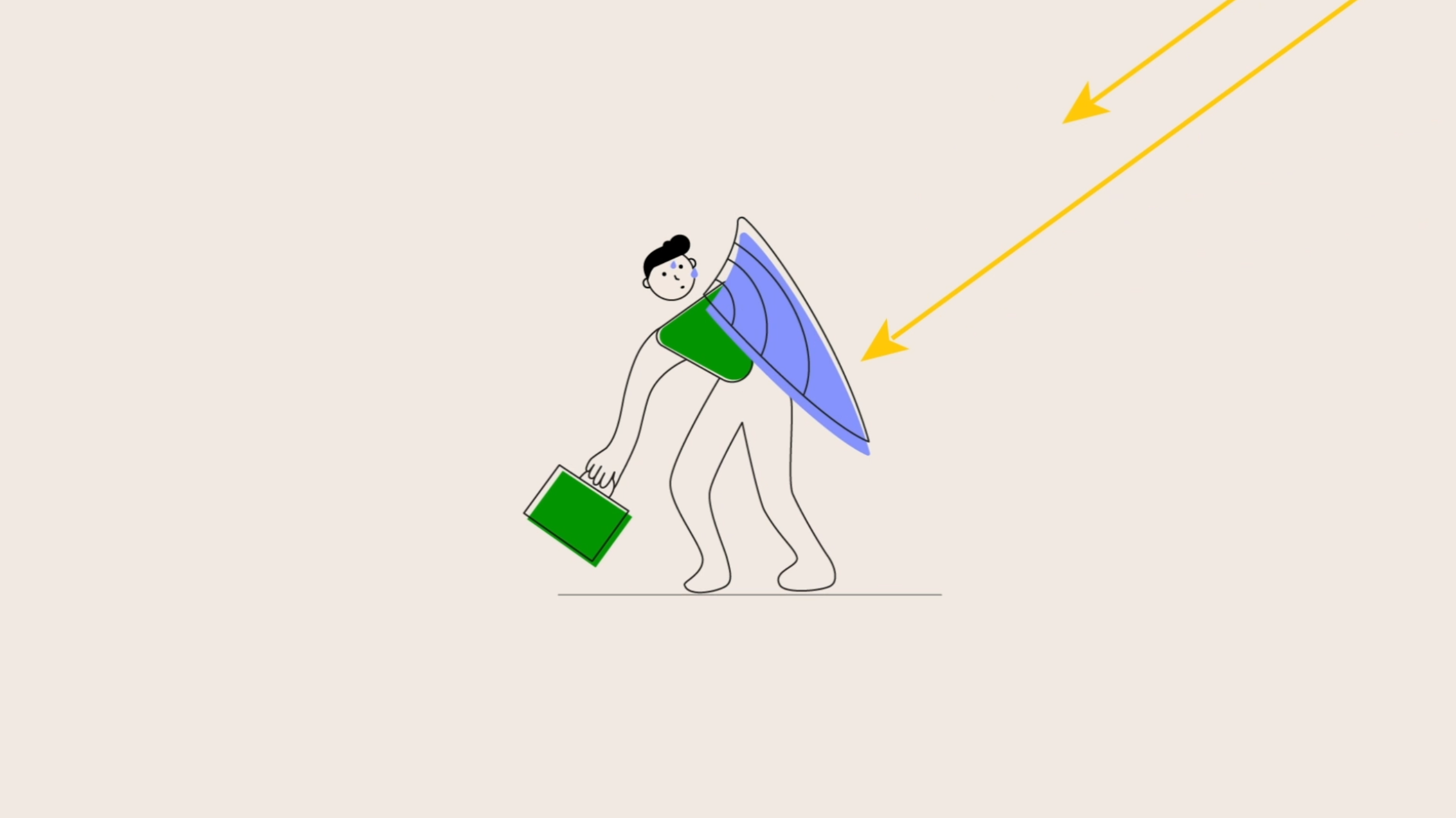
Further Development
First of all, I ought to polish the motion graphics according to the survey result. For example, only one person knows the answer to a question about the deal between users and tech companies on survey two. I should make it clear that users also benefit a lot from free service by tech companies. Secondly, more research on how to protect personal data should carry out. Undoubtedly, the HTTP cookie is a useful tool, but we should promote strengths and avoid weaknesses.
Statistic Support
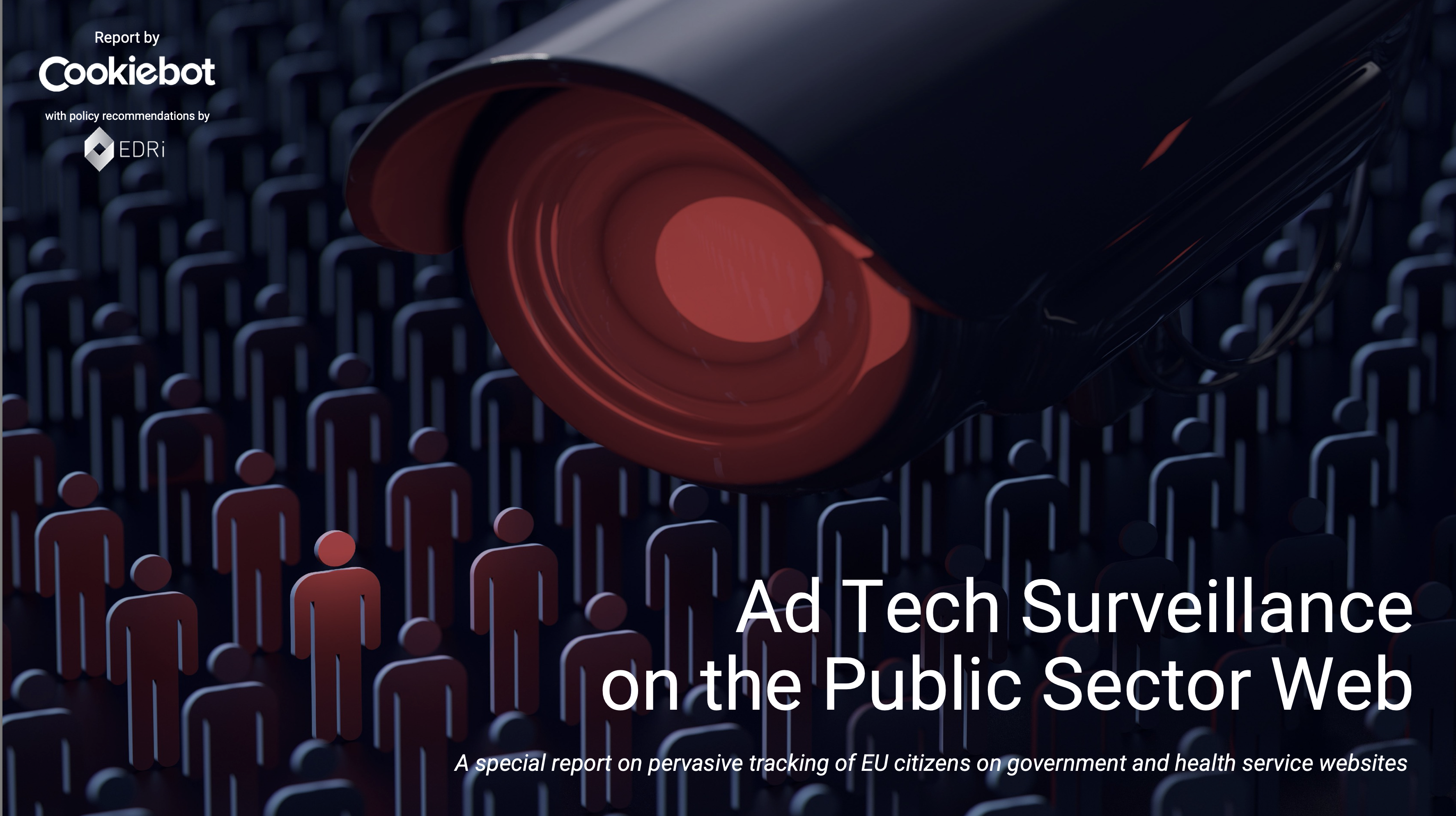
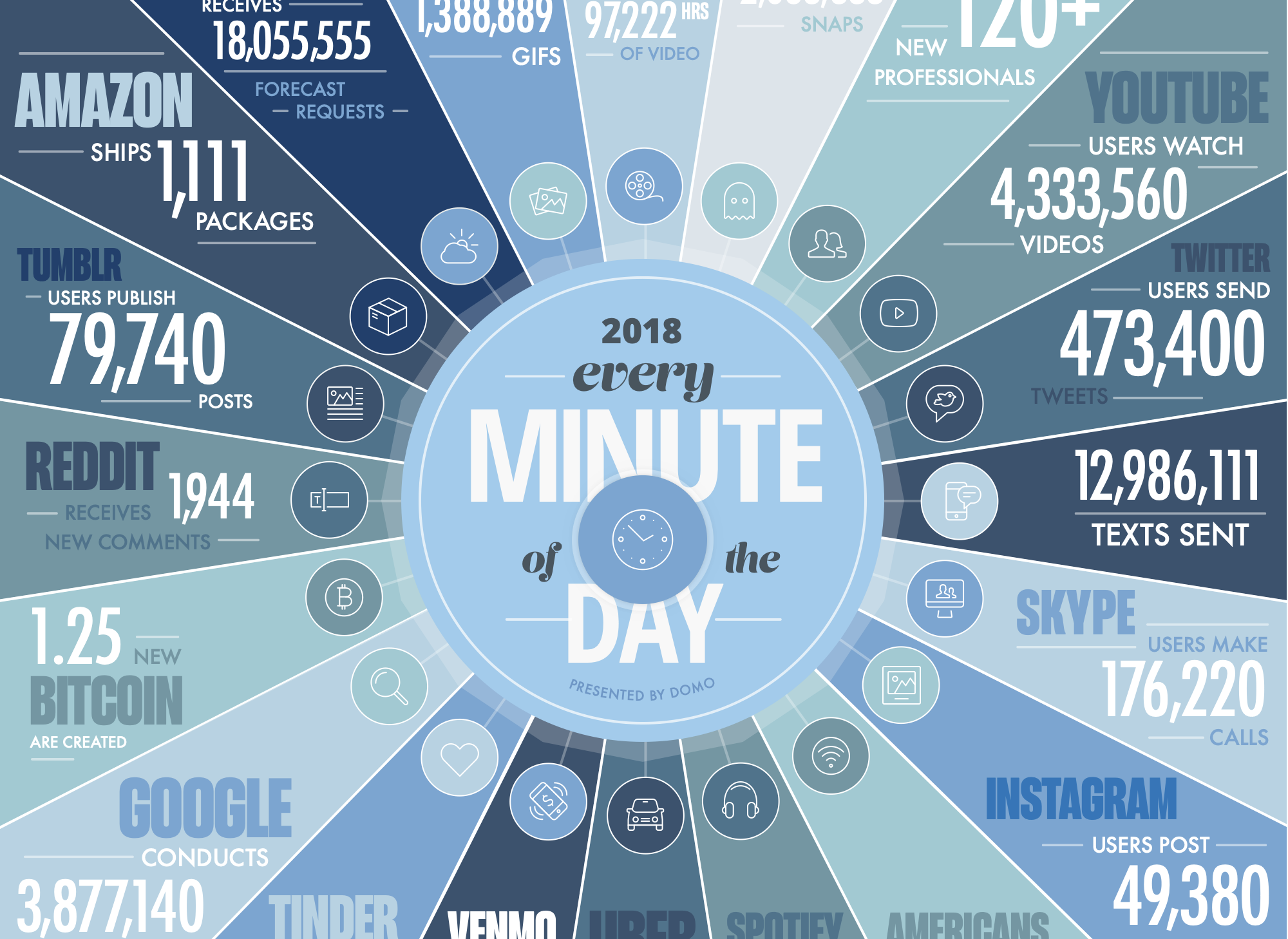
Conclusion

My first concept of the thesis is not about web cookie; it is about big data. After reading more meaningful articles and booming news, doing more interviews with classmates, and talking with Prof. John, arguing with Adam (First Advisor) and Mike(Second Advisor), I shrink down my theme to "web cookie". Big data is too broad and complex to figure it out in a limited time. The animation's starting story in Chapter one happened to me, my classmates and professors, and every user. Thus, it is necessary to treat our data as a property.
Thank You!

